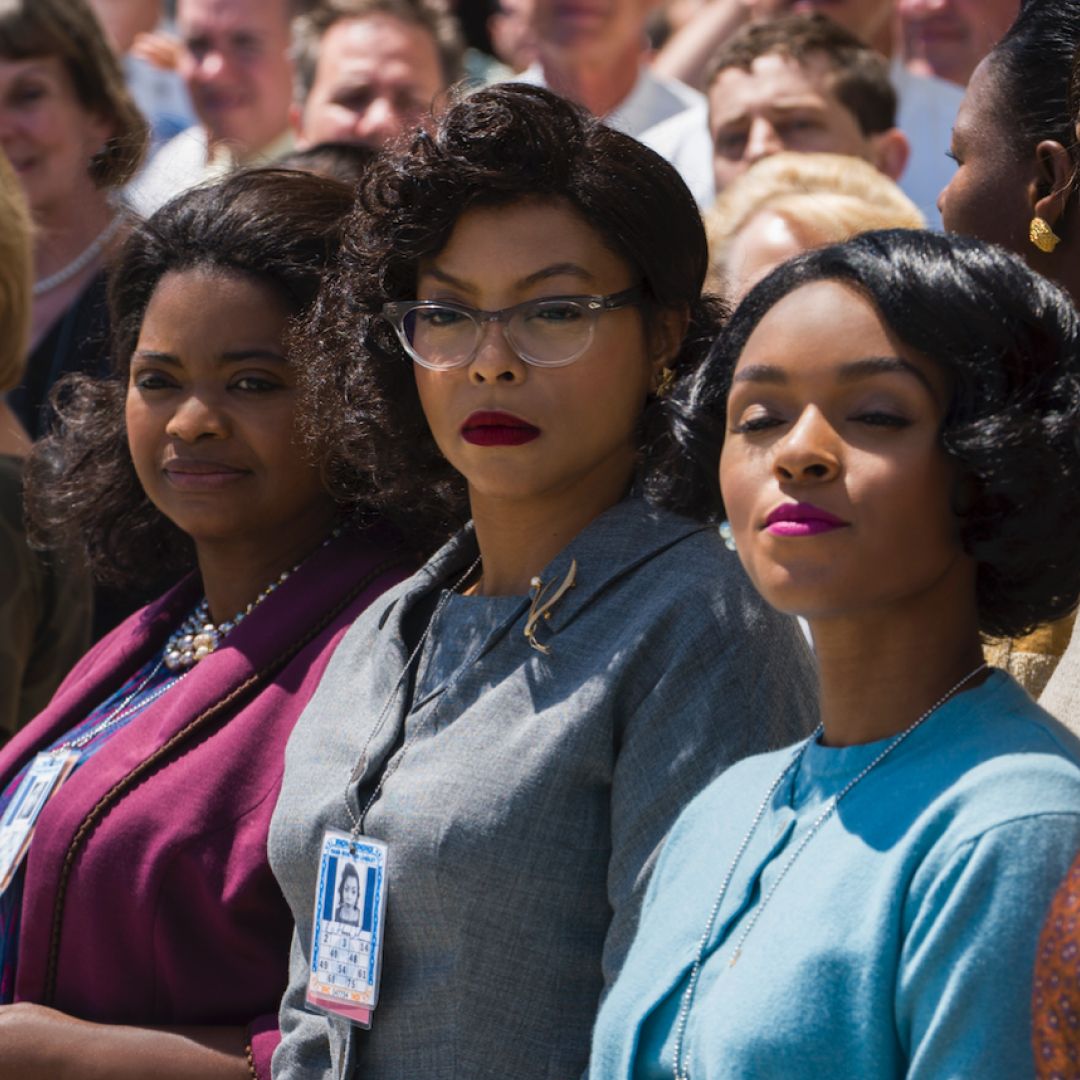
When it comes to page-to-screen adaptations, it’s safe to say that the book is usually far better than the movie—especially for literature lovers who can’t bear to see any of their favorite parts cut in the adaptation process. But now and then, a film comes along that’s able to do its source material justice—whether by staying true to all the most important parts of a book or, in looser adaptations, by broadening its appeal to an even larger audience, modernizing an outdated story, or injecting much-needed life into a slower-moving tale.
Here, we’ve compiled a list of several such exceptions to the rule that have resulted in some of the best book-to-movie adaptations ever, ranging from classic romances and compelling coming-of-age stories to moving dramas. In many cases, these films have taken on their own lives, separate from their original inspirations—from winning Oscars and going down in history as some of the best movies of all time to attracting cult followings and becoming go-to comfort movies for countless viewers. Read on for 30 of the best book-to-movie adaptations ever made, which prove that the book isn't always better than the movie.
'12 Years a Slave' (2013)
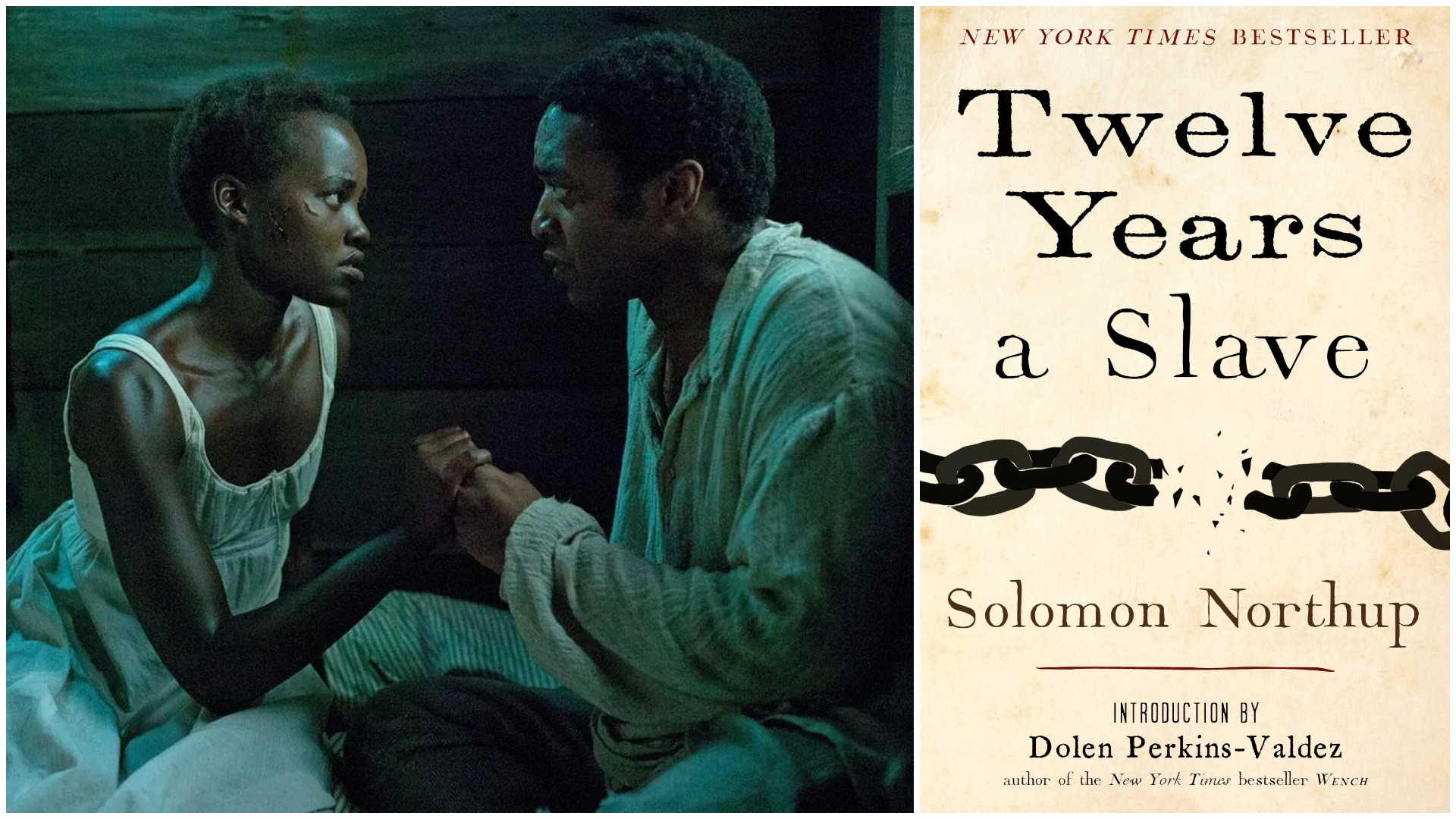
Based on: Twelve Years a Slave (1853) by Solomon Northup
Several years before the start of the Civil War, Northup published his memoir, detailing the harrowing story of how he’d been born a free man in New York, then kidnapped and sold into slavery in Louisiana. More than 150 years later, this Steve McQueen-directed film adaptation did important work bringing Northup’s story about the 12 years he spent enslaved before he secured his freedom to new audiences. Chiwetel Ejiofor stars as Northup, and the film earned Best Picture at the Oscars, along with spots on many all-time best film lists.
'American Fiction' (2023)
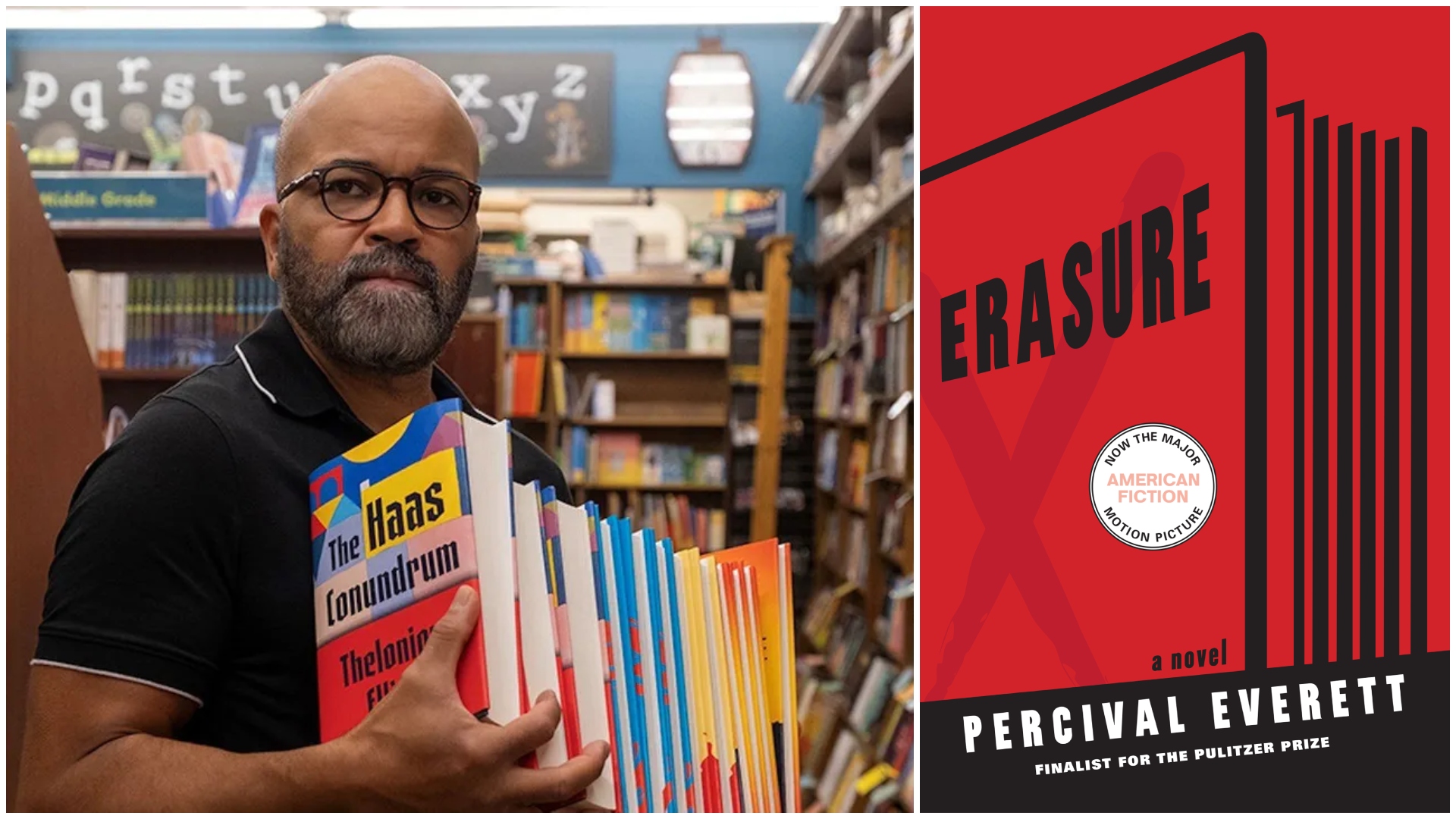
Based on: Erasure (2001) by Percival Everett
Percival Everett’s satirical novel tells the story of Thelonious “Monk” Ellison, a professor and author struggling to get books published because their highly intellectual content is deemed “not Black enough.” He sets out to write a parody of a so-called “Black novel,” filled with lazy and damaging stereotypes—which becomes a major hit. More than 20 years later, unfortunately, the messages of the novel and the systemic racism at play in the plot still ring true, allowing the recent film adaptation to lay bare those truths and hit close to home for many viewers.
'Are You There God? It’s Me, Margaret.' (2023)
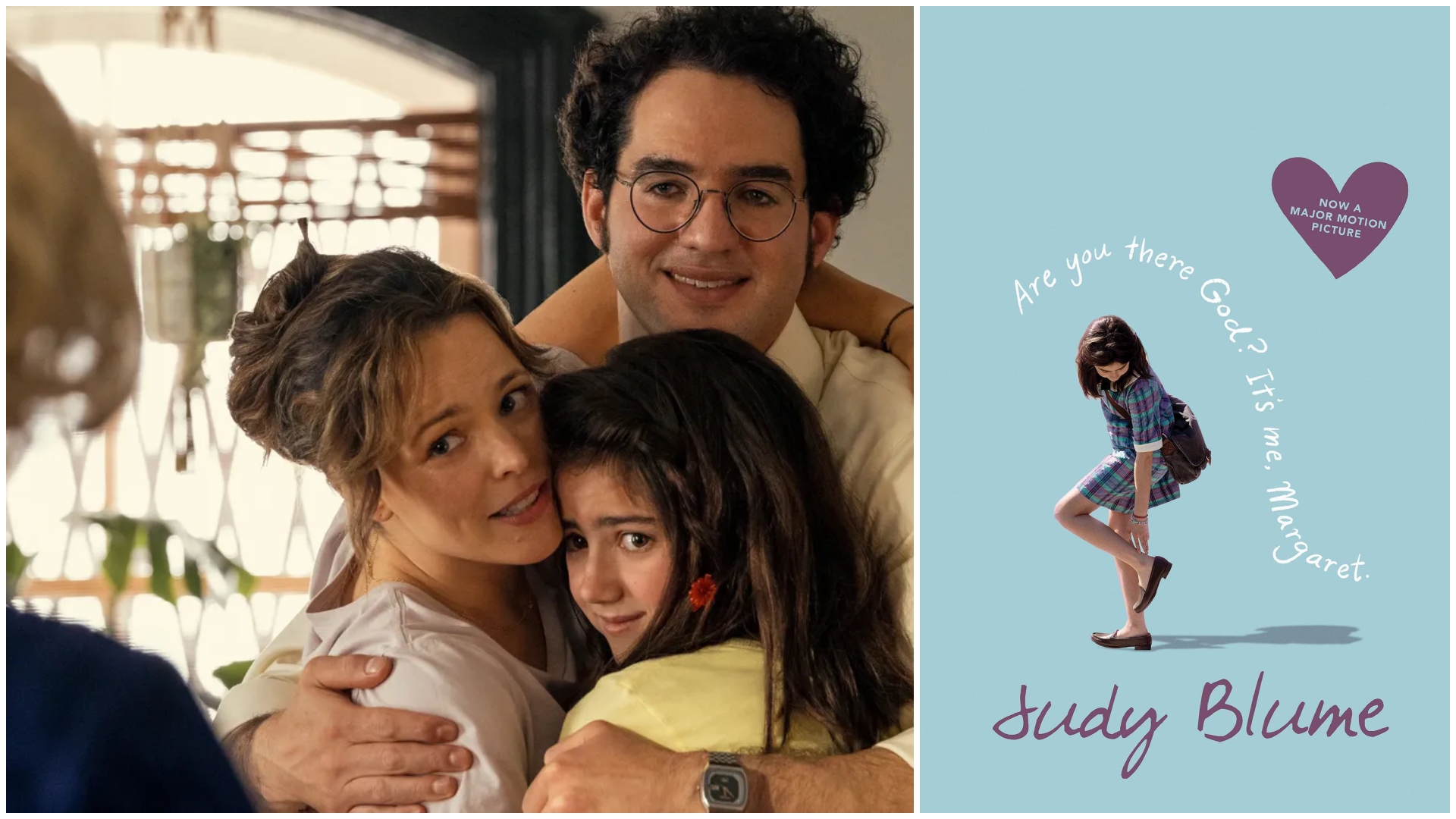
Based on: Are You There God? It’s Me, Margaret. (1970) by Judy Blume
In the decades following the release of Judy Blume’s book, it was often the subject of censorship challenges across the U.S. due to its candid depiction of 11-year-old Margaret Simon’s experience of puberty and exploring the concept of religion. The long-awaited film adaptation—starring Abby Ryder Fortson, Rachel McAdams, and Kathy Bates as three generations of Simon women—does justice to all of the confusing feelings plaguing not only Margaret but her mother and grandmother. The heartwarming film received rave reviews upon its release, currently holds a 99% on Rotten Tomatoes, and is worth watching. Don’t believe us? Maybe you’ll listen to Blume herself, who called the movie better than her own book.
'Atonement' (2007)
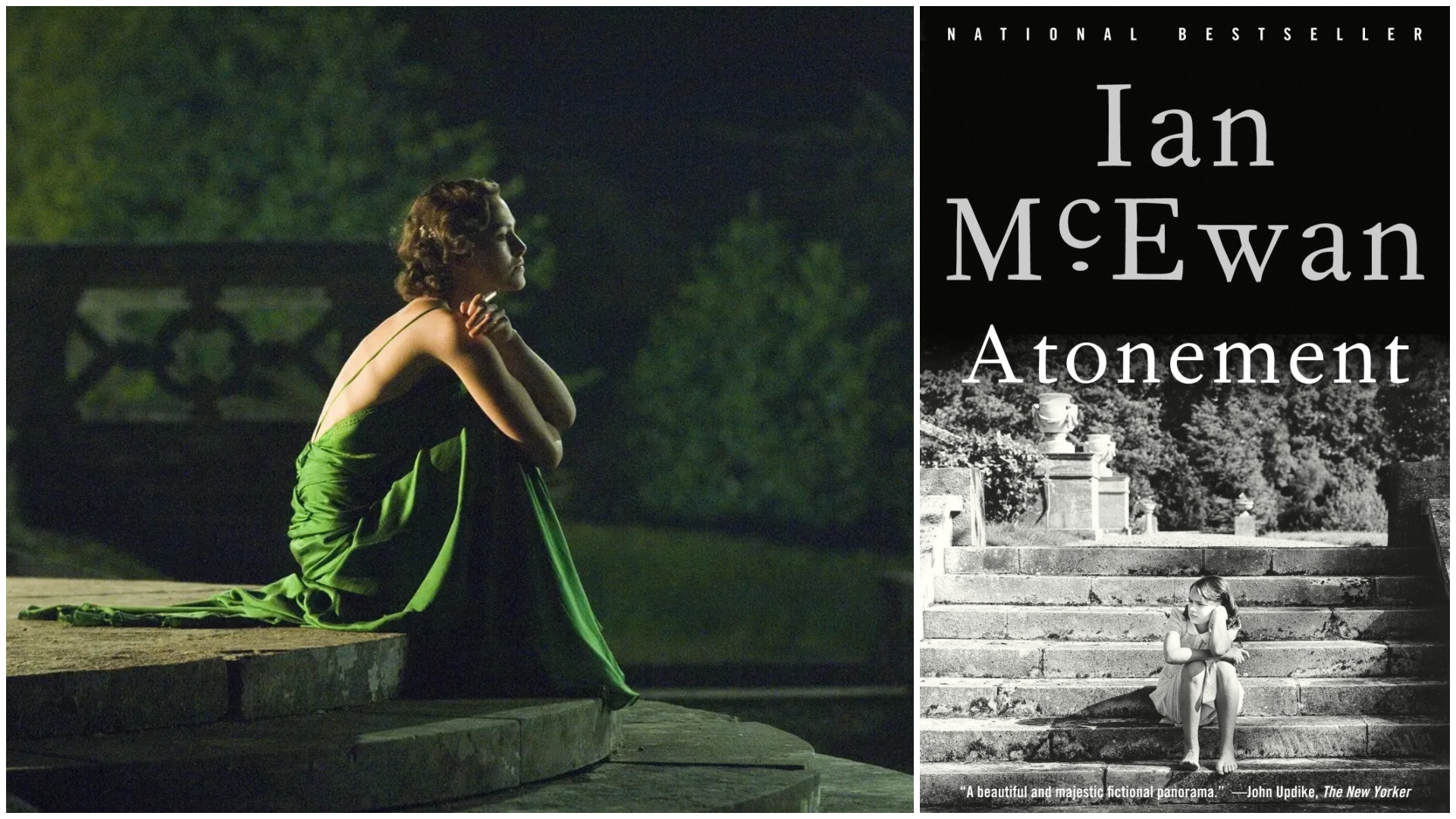
Based on: Atonement (2001) by Ian McEwan
You’ll need your tissues for Ian McEwan’s book and Joe Wright’s onscreen adaptation. Without spoiling anything, the tearjerker details the long-lasting consequences of a single lie and the heartbreaking reality of what it did to the lives of all involved. Be warned: You may never look at Saoirse Ronan the same way again after watching the devastating film.
'BlacKkKlansman' (2018)
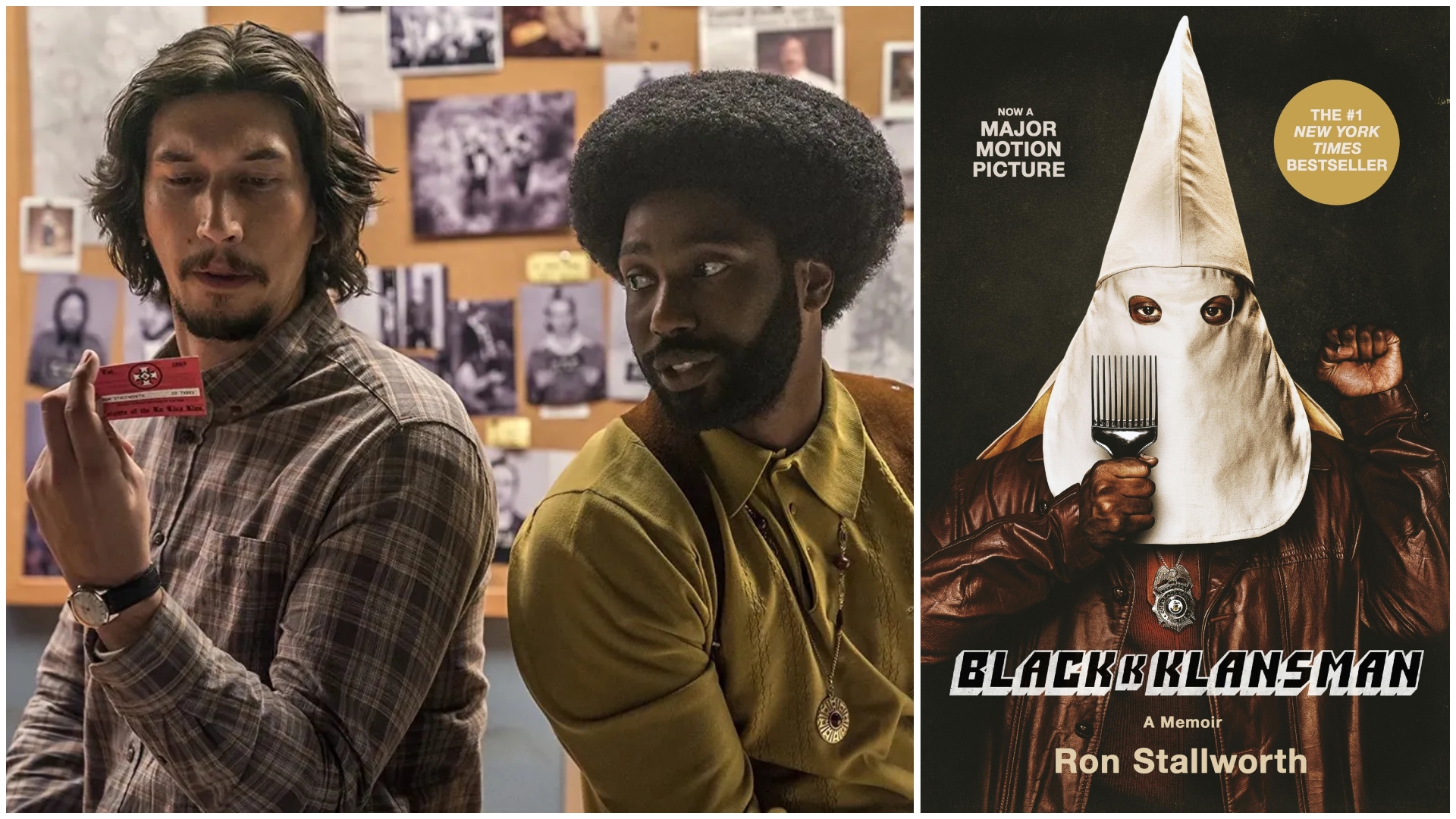
Based on: Black Klansman: Race, Hate, and the Undercover Investigation of a Lifetime (2014) by Ron Stallworth
In the 1970s, Ron Stallworth, the first Black officer in the Colorado Springs Police Department, went undercover as a member of the Ku Klux Klan, sending in a white colleague when in-person appearances were needed. Spike Lee brought the wild true story to the big screen with a deft hand: The movie, starring John David Washington as Stallworth, is equal parts outrageous, shocking, and hilarious, and it also finally earned Lee a long-overdue and well-deserved first Oscar nom for Best Director.
'Breakfast at Tiffany's' (1961)
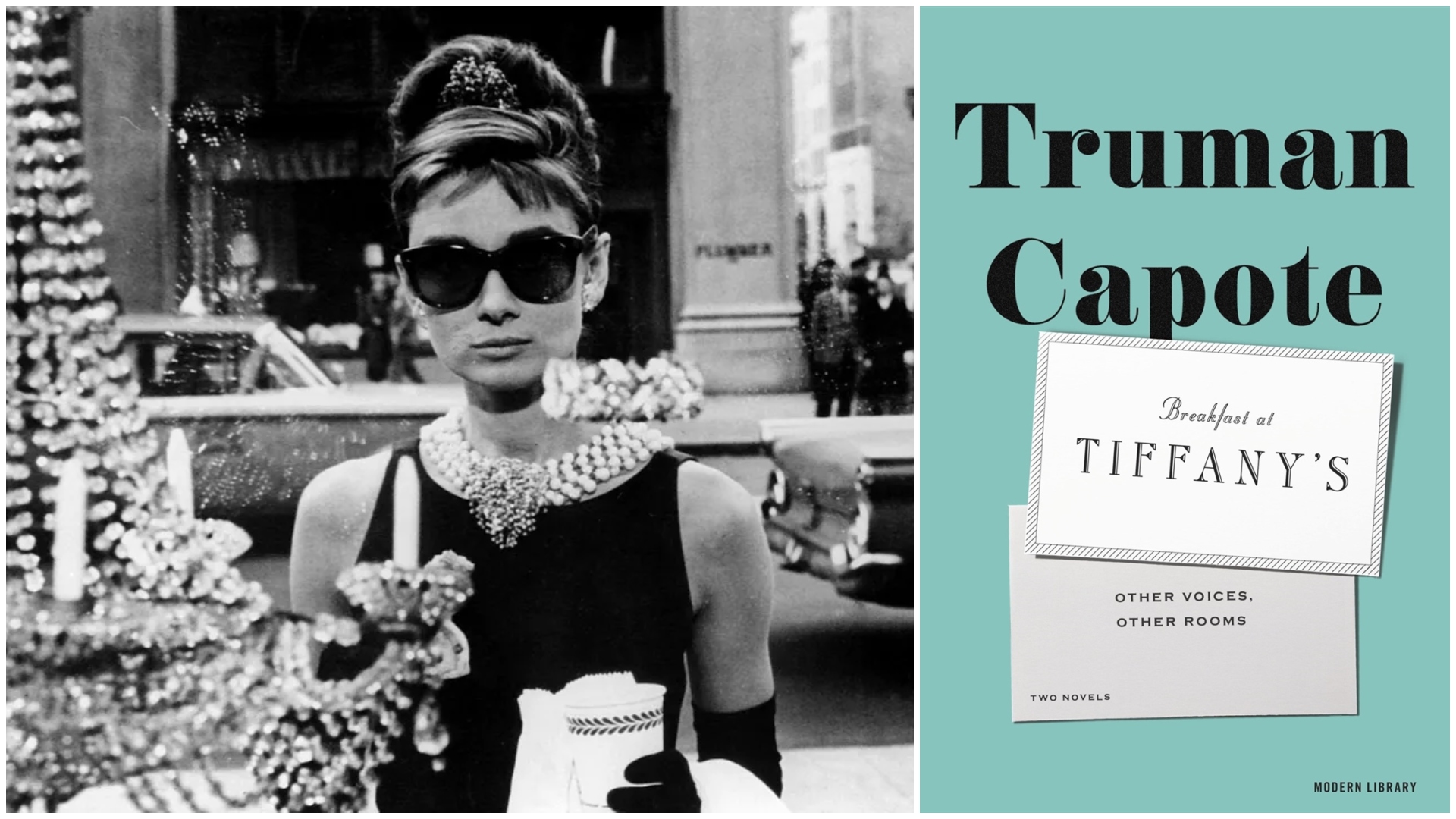
Based on: Breakfast at Tiffany’s (1958) by Truman Capote
Like many others on this list, the film version of Breakfast at Tiffany's is far more popular than the Truman Capote novella that inspired it. The rom-com has become such a fixture of pop culture that, to this day, you’d be hard-pressed to find a college dorm without a poster of Audrey Hepburn’s Holly Golightly somewhere inside or a Halloween party without a single take on the call girl’s classic Givenchy LBD.
'Call Me By Your Name' (2017)
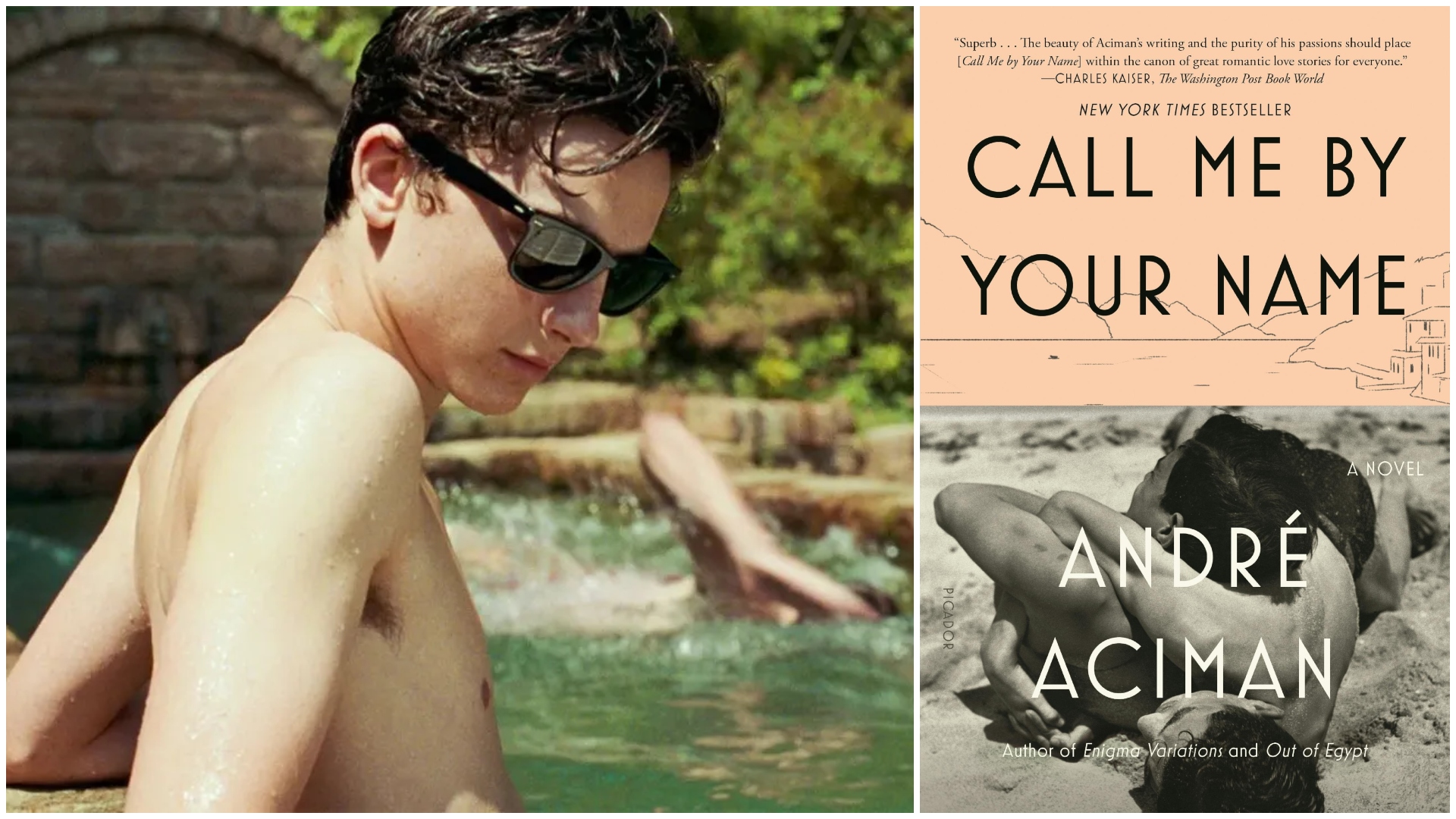
Based on: Call Me By Your Name (2007) by André Aciman
The page and screen versions of Call Me By Your Name were met with rave reviews upon their respective releases. And both are certainly worth your time: While the core story remains unchanged between the two—following the forbidden romance between a 17-year-old boy (Timothée Chalamet) and the 20-something student (Armie Hammer) who comes to stay with his family in Italy one summer—they differ slightly in their endings. The film version concludes on a particularly heartbreaking note later that same year, while the book expands to capture a few more meetings between the pair over the next 20 years, making for a much more bittersweet ending.
'Crazy Rich Asians' (2018)
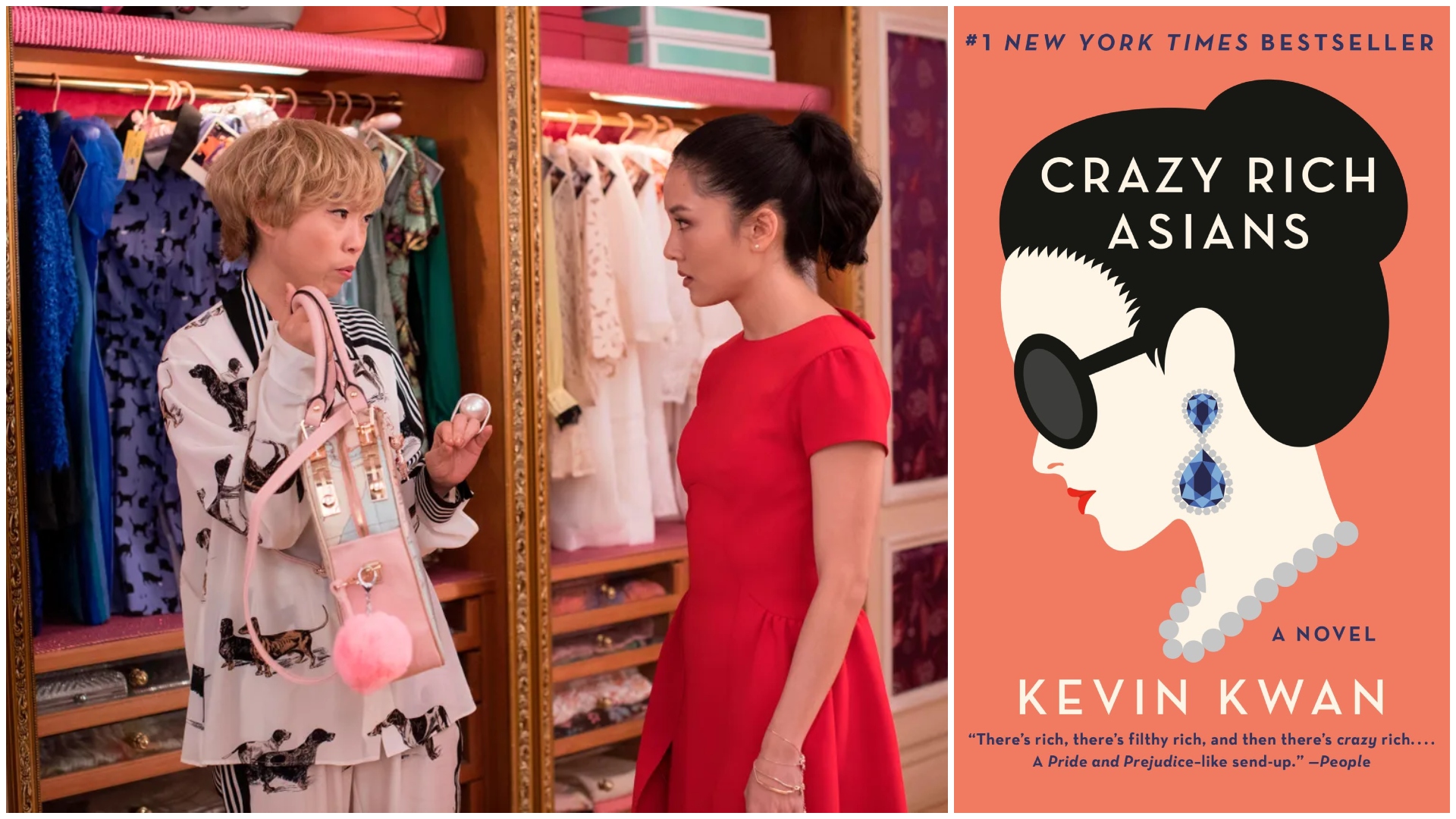
Based on: Crazy Rich Asians (2013) by Kevin Kwan
Kevin Kwan’s book, the first in a trilogy, was a well-received romantic comedy that told the story of an Asian-American woman’s introduction to the world of over-the-top wealth in Singapore. Its movie adaptation became a phenomenon in its own right, topping the box office to become the highest-grossing rom-com of the 2010s and, in the process, leading to a major boost in representation for Asian actors.
The 'Dune' series (2021–24)
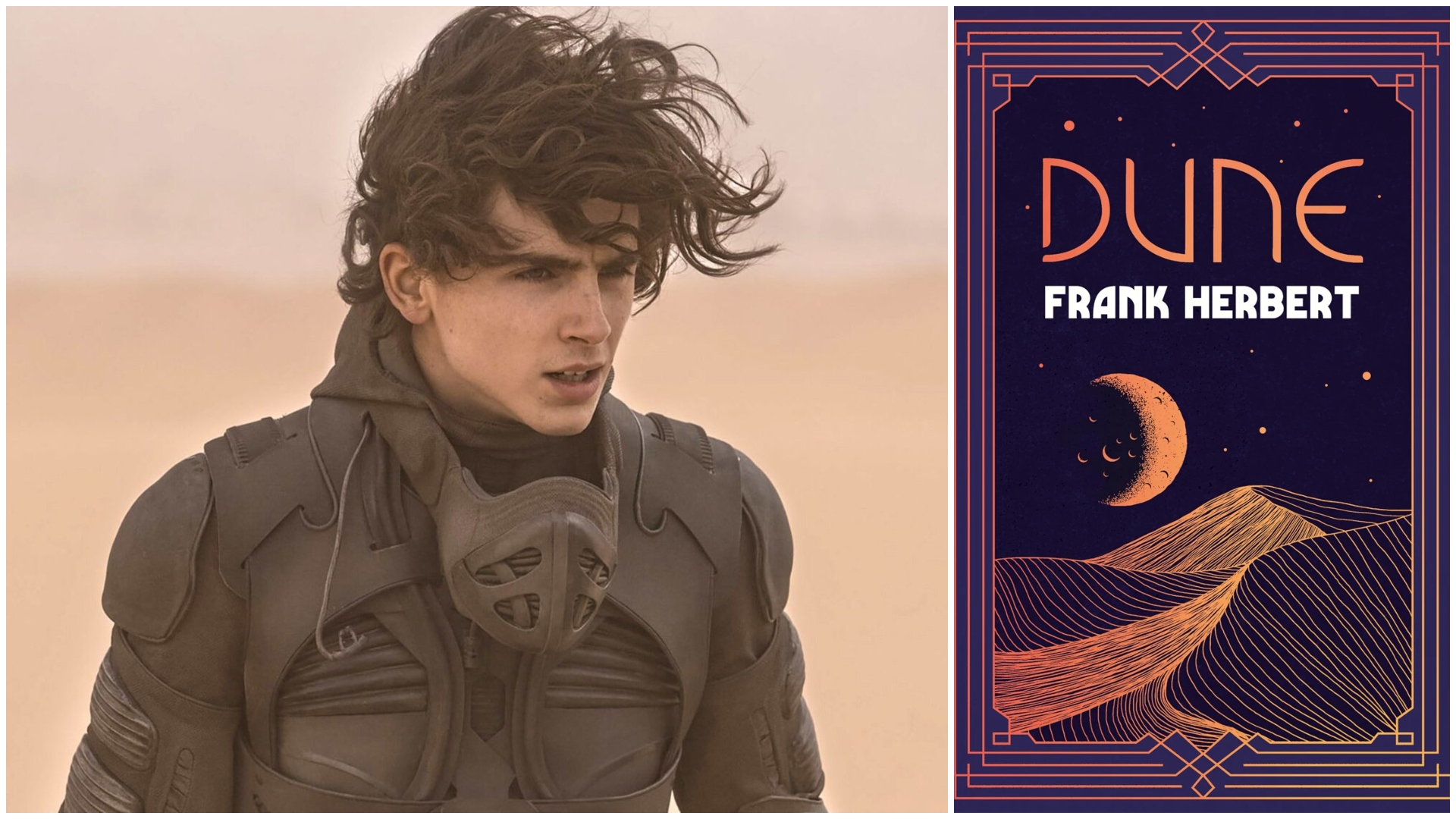
Based on: Dune (1965) by Frank Herbert
Herbert’s sci-fi epic has been adapted for the screen several times, but director Denis Villeneuve’s decision to break up Dune into multiple feature-length films enabled him to go even deeper into the story than David Lynch’s 1984 one-part version. The result is a visually stunning work that has ample time to build out both the complex world of Dune and the characters who reside there, allowing it to appeal to fans of the book and more casual viewers alike—as evidenced by Part One's nomination for an impressive 10 Oscars, including Best Picture, six of which it won.
'Gone Girl' (2014)
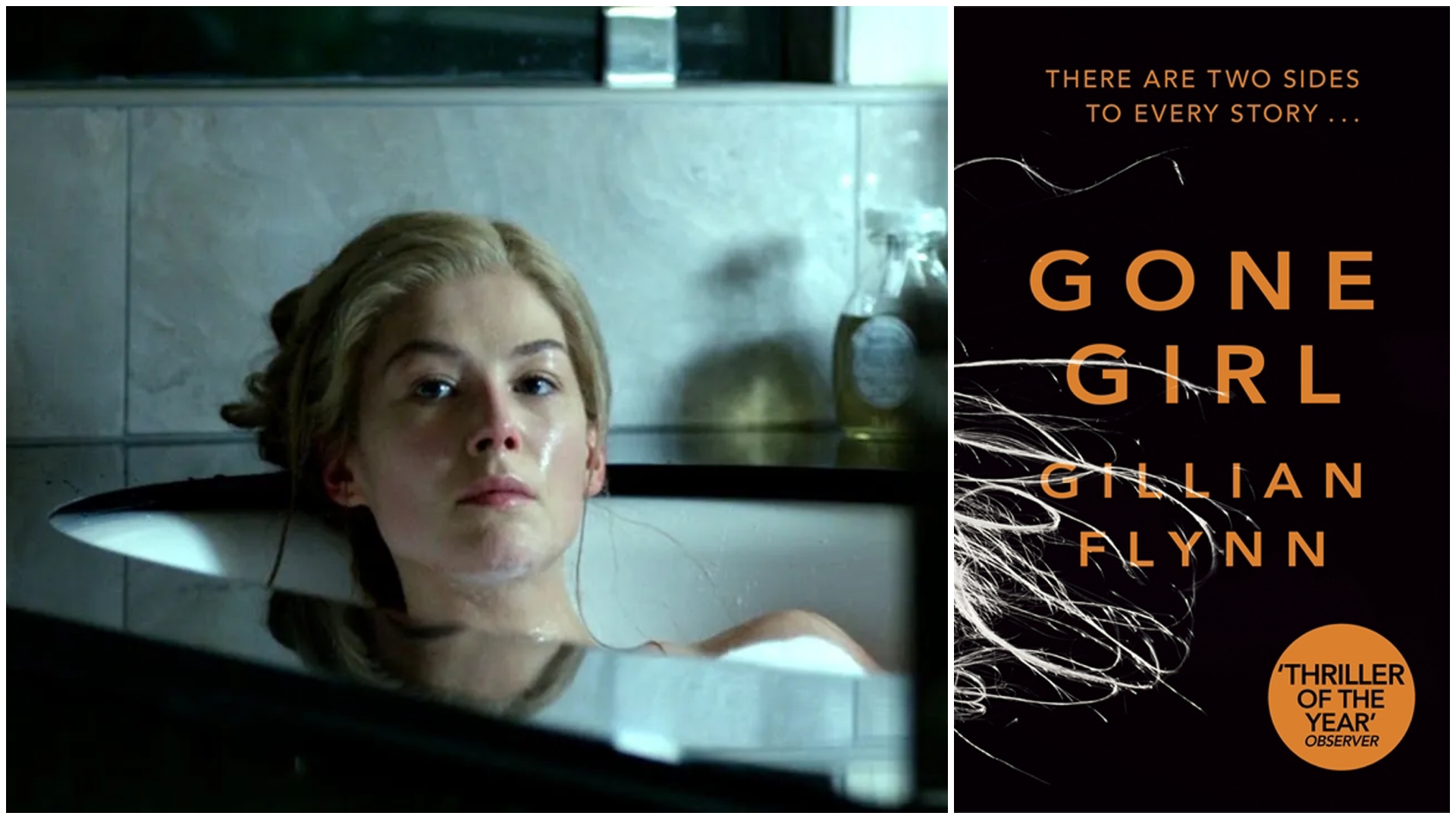
Based on: Gone Girl (2012) by Gillian Flynn
Gillian Flynn wrote the screenplay for the onscreen adaptation of her book, so you know it’s good. Both the bestselling thriller novel and the Oscar nominee follow the twisty trail of the mysterious disappearance of a woman (played by Rosamund Pike) with a seemingly perfect life, which appears to lead straight to her husband (Ben Affleck), a guy with a highly punchable face who always seems to be smiling at the wrong time. You’ll need to pay close attention to keep track of Gone Girl’s many twists and turns.
The 'Harry Potter' series (2001–11)
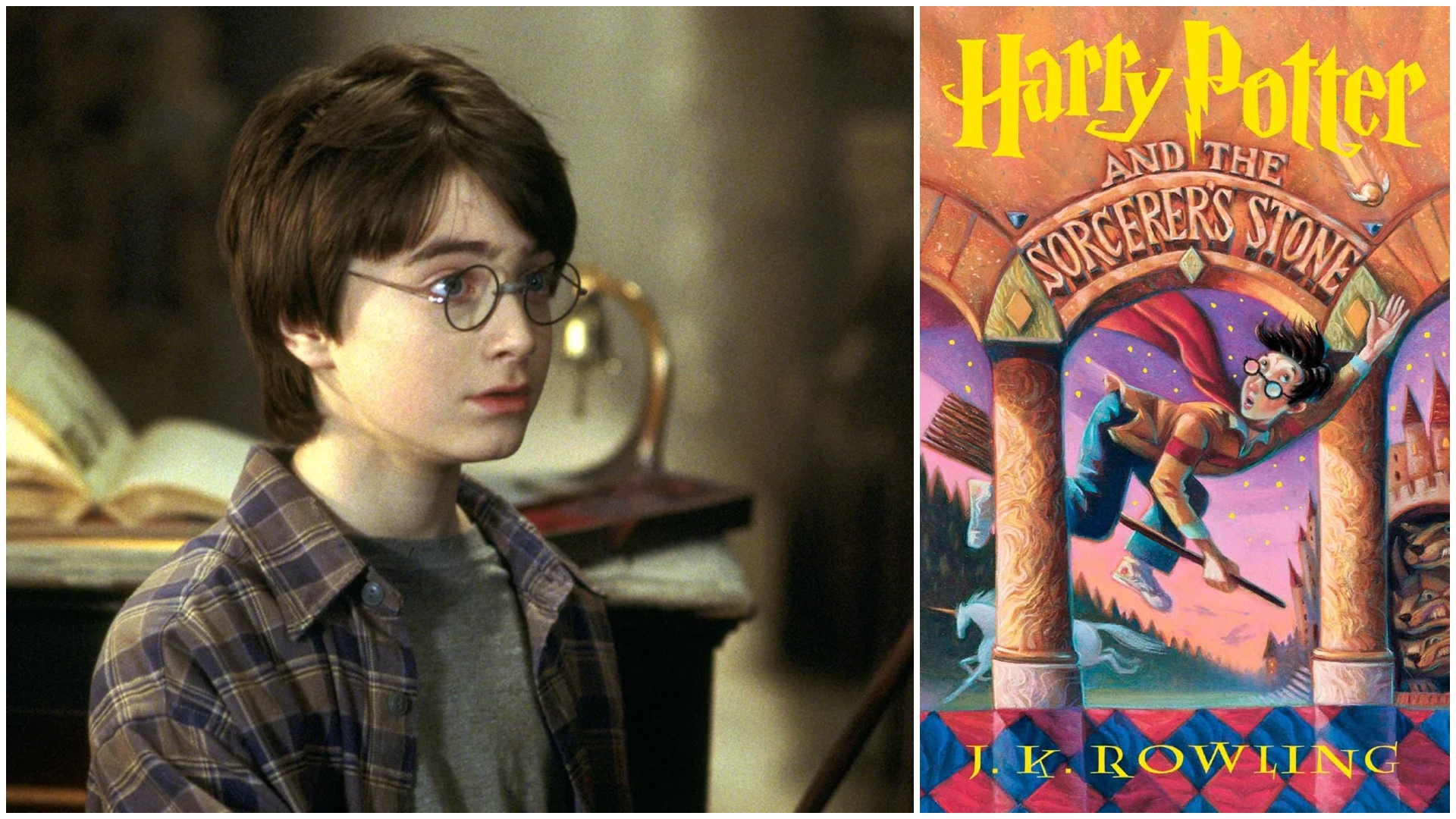
Based on: The Harry Potter series (1997–2007) by J.K. Rowling
J.K. Rowling has lost favor with many former fans due to her misinformed transphobia in recent years, but there was a time when she and her magical fantasy series captured the hearts and minds of millions. The subsequent movie series did an objectively fantastic job of bringing England’s hidden magical world to life, to the point that the movies’ three main actors (Daniel Radcliffe, Emma Watson, and Rupert Grint)—who, for the record, have all spoken out against Rowling’s nauseating views—continue to be all but indistinguishable from their characters for many longtime Potterheads.
'Hidden Figures' (2016)
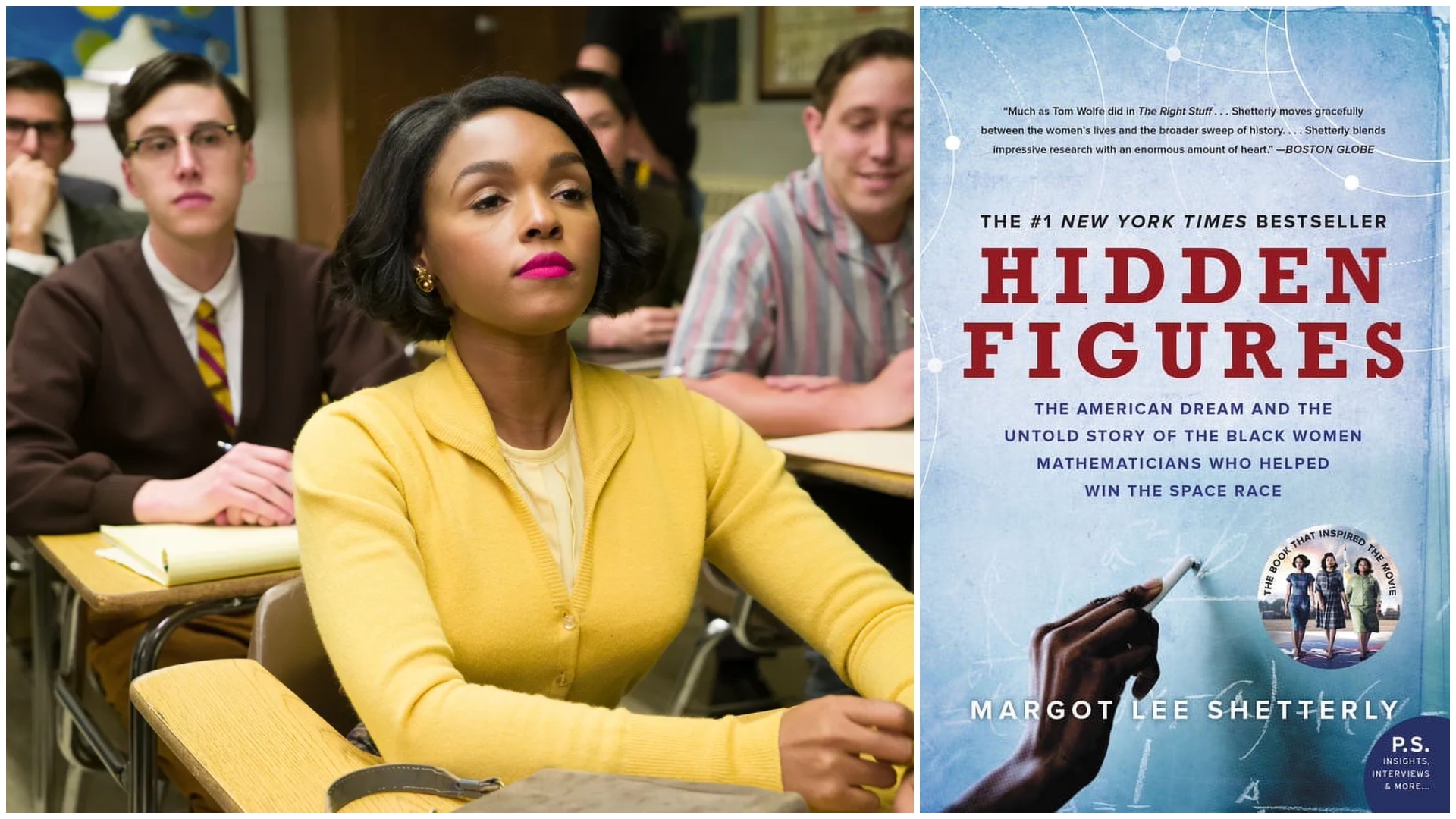
Based on: Hidden Figures: The American Dream and the Untold Story of the Black Women Who Helped Win the Space Race (2016) by Margot Lee Shetterly
As the title implies, Margot Lee Shetterly’s book casts new light on the long-overlooked story of some key players in the U.S.’s mid-20th-century space missions. The (multi-Oscar-nominated) film adaptation cranked up the brightness of that light, making Katherine Johnson, Dorothy Vaughan, and Mary Jackson (played by Taraji P. Henson, Octavia Spencer, and Janelle Monáe, respectively) practically into household names, never to be lost to history again.
The 'Hunger Games' series (2012– )
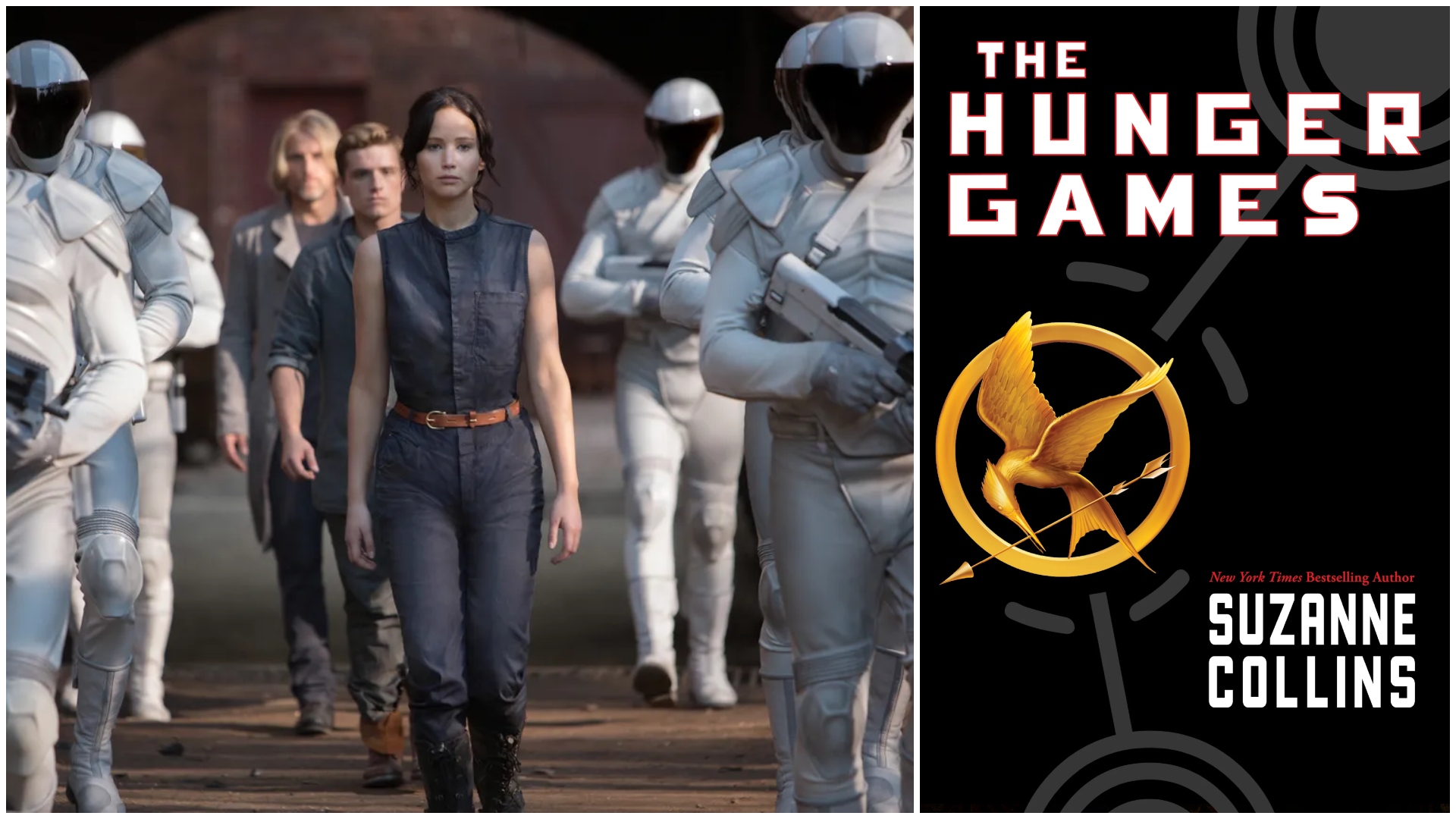
Based on: The Hunger Games series (2008– ) by Suzanne Collins
For more than a decade, readers of all ages have been captivated by Suzanne Collins's dystopian series, which details a future in which the U.S. is split into districts that send child “tributes” to fight to the death in an annual competition, broadcast live on TV. The onscreen renditions of the books have garnered plenty of acclaim from dedicated readers and film critics alike; many agree, for example, that Catching Fire is among the most faithful page-to-screen adaptations ever made. And the hype has yet to die down: Collins has since released the prequels, The Ballad of Songbirds and Snakes and Sunrise on the Reaping. Songbirds and Snakes arrived in theaters in 2023, while Sunrise on the Reaping is coming soon.
'If Beale Street Could Talk' (2018)
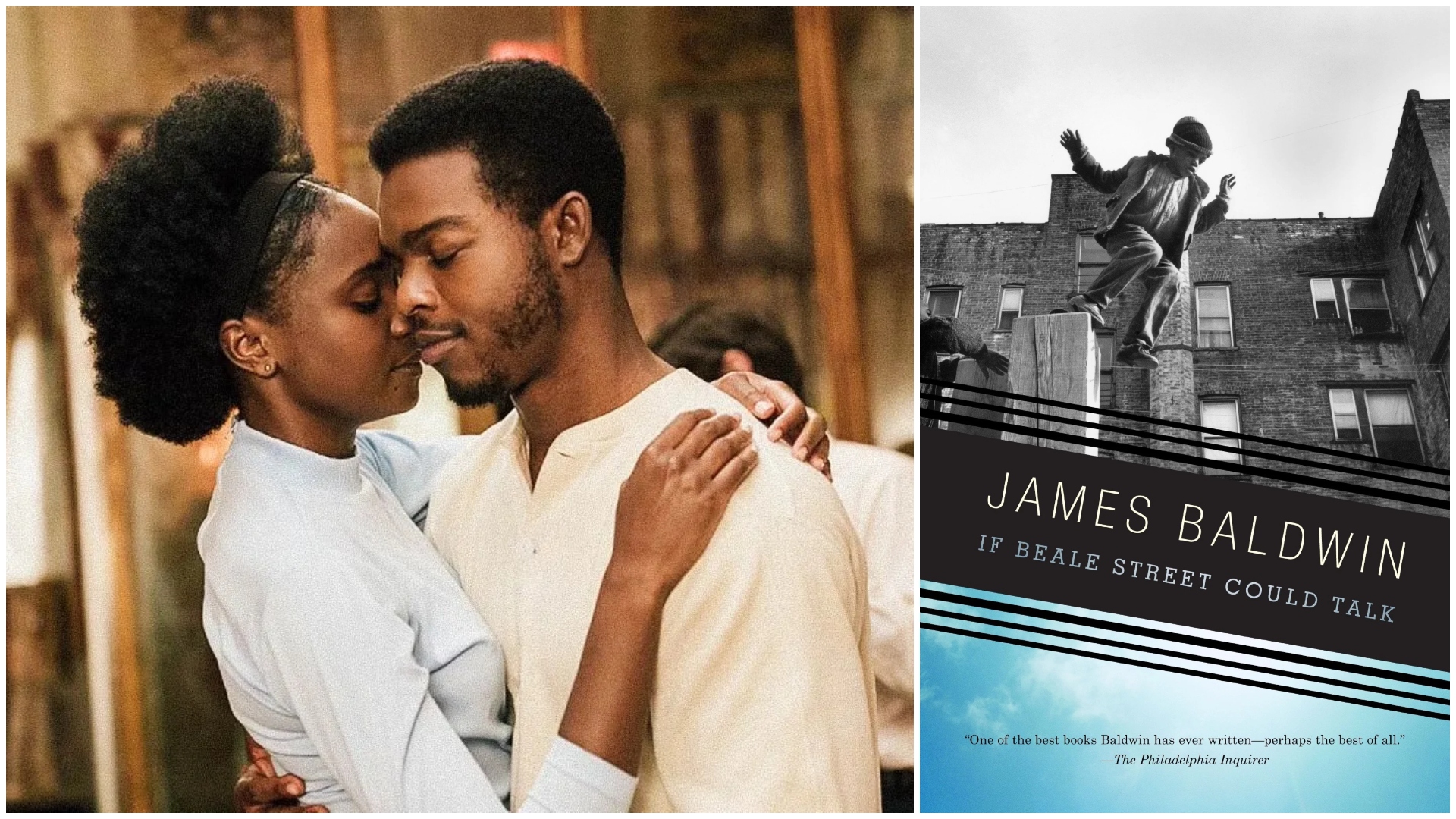
Based on: If Beale Street Could Talk (1974) by James Baldwin
James Baldwin’s novel is often hailed as a love story of many kinds, showcasing the romantic love between a couple and the protective, sacrificial love between family members. Barry Jenkins took care to transfer that multifaceted depiction of love from the page to the screen: In his film, KiKi Layne gives a moving performance as Tish, whose boyfriend Fonny (Stephan James) is wrongfully incarcerated for rape and who, after discovering she’s pregnant with Fonny’s baby, is fiercely protected by her mother, played by Regina King in an Oscar-winning role.
'Killers of the Flower Moon' (2023)
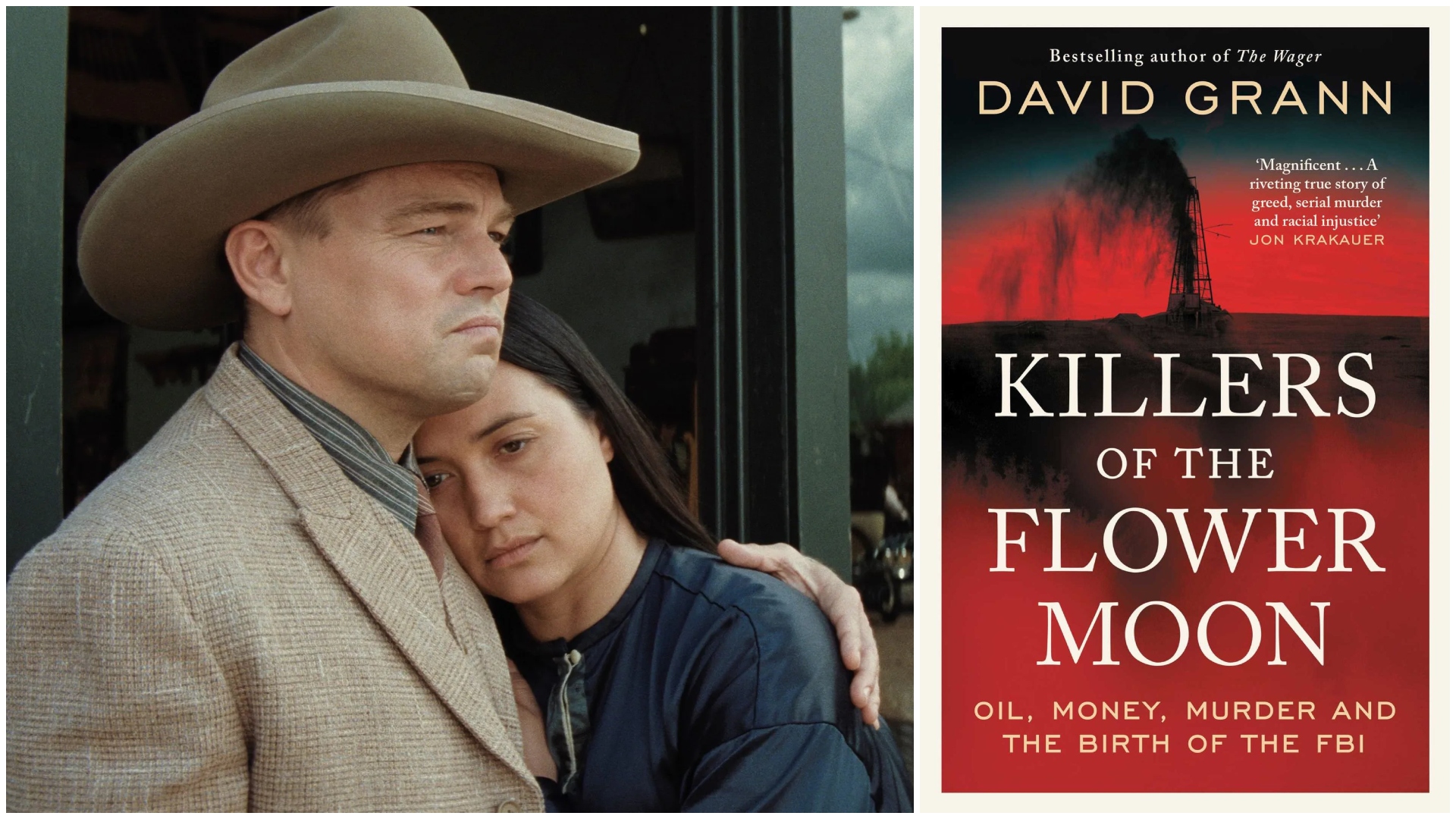
Based on: Killers of the Flower Moon: The Osage Murders and the Birth of the FBI (2017) by David Grann
David Grann’s deeply researched, meticulously compiled nonfiction book is fascinating and well worth a read. And while Martin Scorsese’s Best Picture-nominated film cuts out some major chunks of the book, it does a fantastic job of focusing on the most intense, human aspects for an important depiction of a tragically overlooked era of American history. Trust us: You’ll be so swept up by the powerful story that you won’t even notice its nearly three-and-a-half-hour runtime.
'Little Women' (2019)
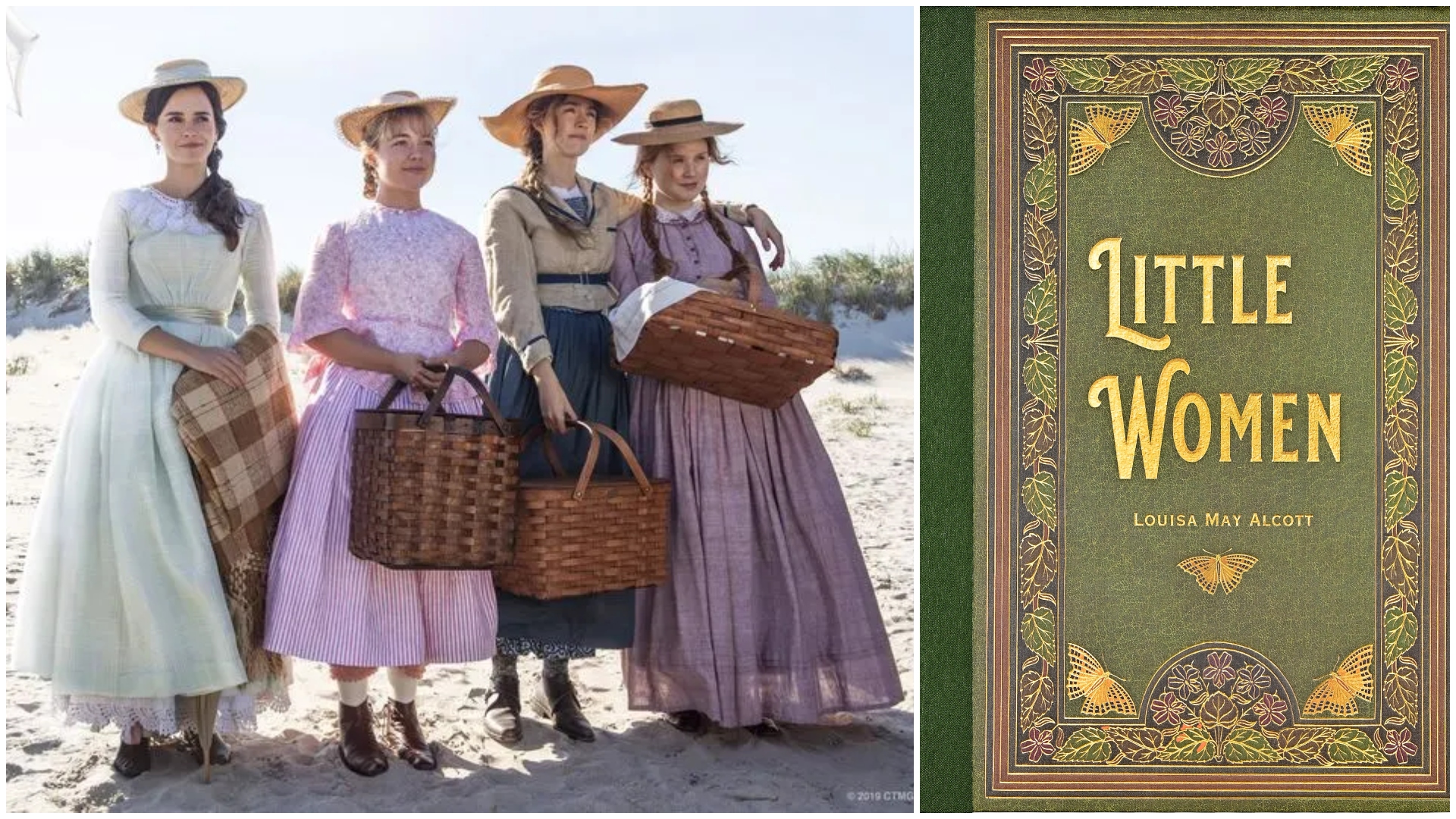
Based on: Little Women (1868-69) by Louisa May Alcott
Apologies to all diehard fans of the '90s movie adaptation of this great American classic, but as we're Amy March apologists, Greta Gerwig’s 2019 version will always reign supreme. On top of proving just how complex the youngest March sister truly is (and always has been), it also hews remarkably close to Louis May Alcott’s timeless book, with its eternally relatable stories of growing up, falling in love, and making one’s way in the world.
The 'Lord of the Rings' series (2001–03)
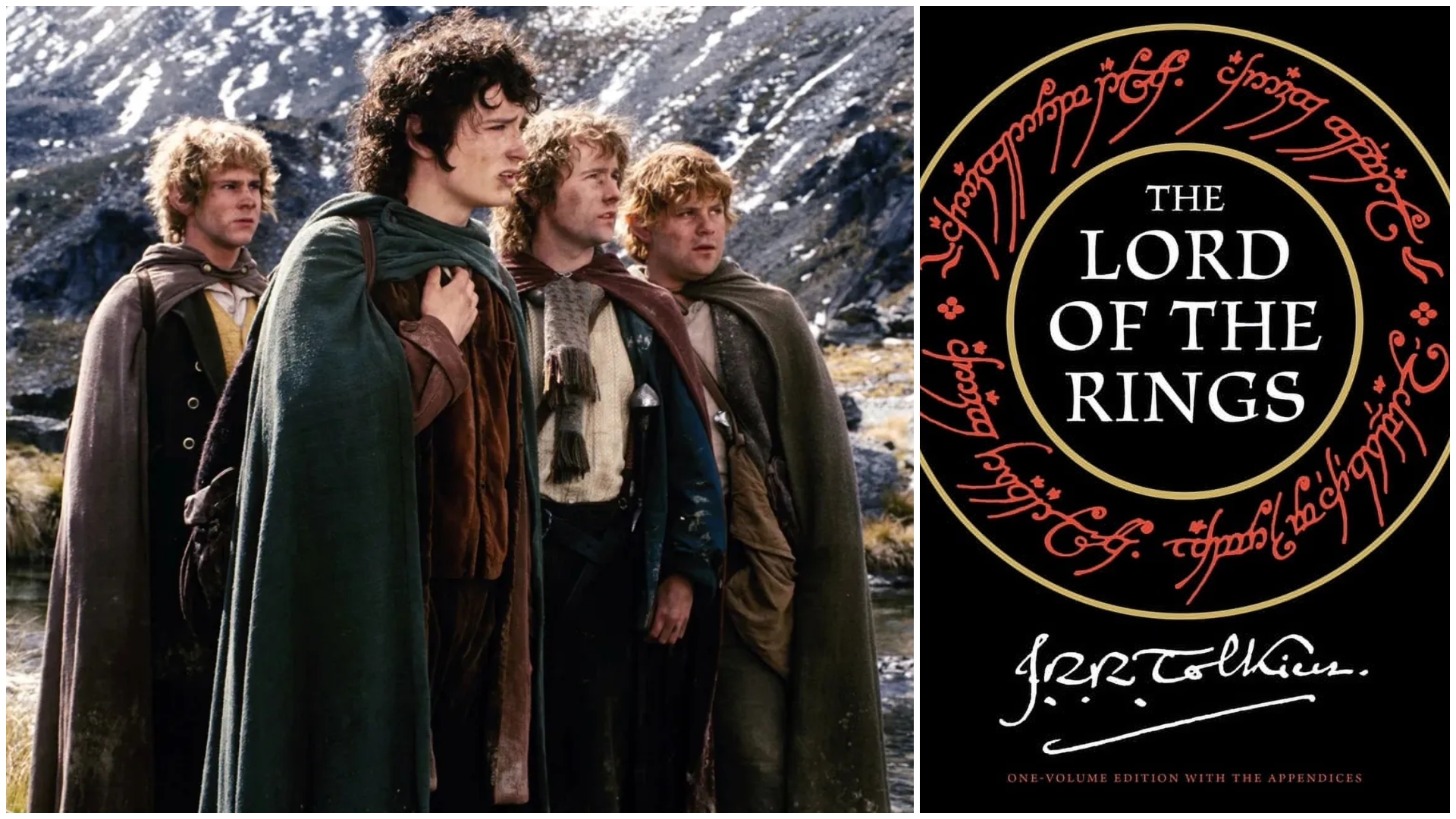
Based on: The Lord of the Rings (1954–55) by J.R.R. Tolkien
It wasn’t until about half a century after its publication that Hollywood did justice to J.R.R. Tolkien’s three-part fantasy epic. As the story set in Middle-earth was broken into three films that were shot back-to-back, the series is one of the most expensive and expansive film projects of all time. All that work paid off, as the films were all box-office successes, earned widespread praise for staying true to the source material, and remain beloved by fans, many of whom regularly travel to New Zealand to visit the filming locations.
'Matilda' (1996)
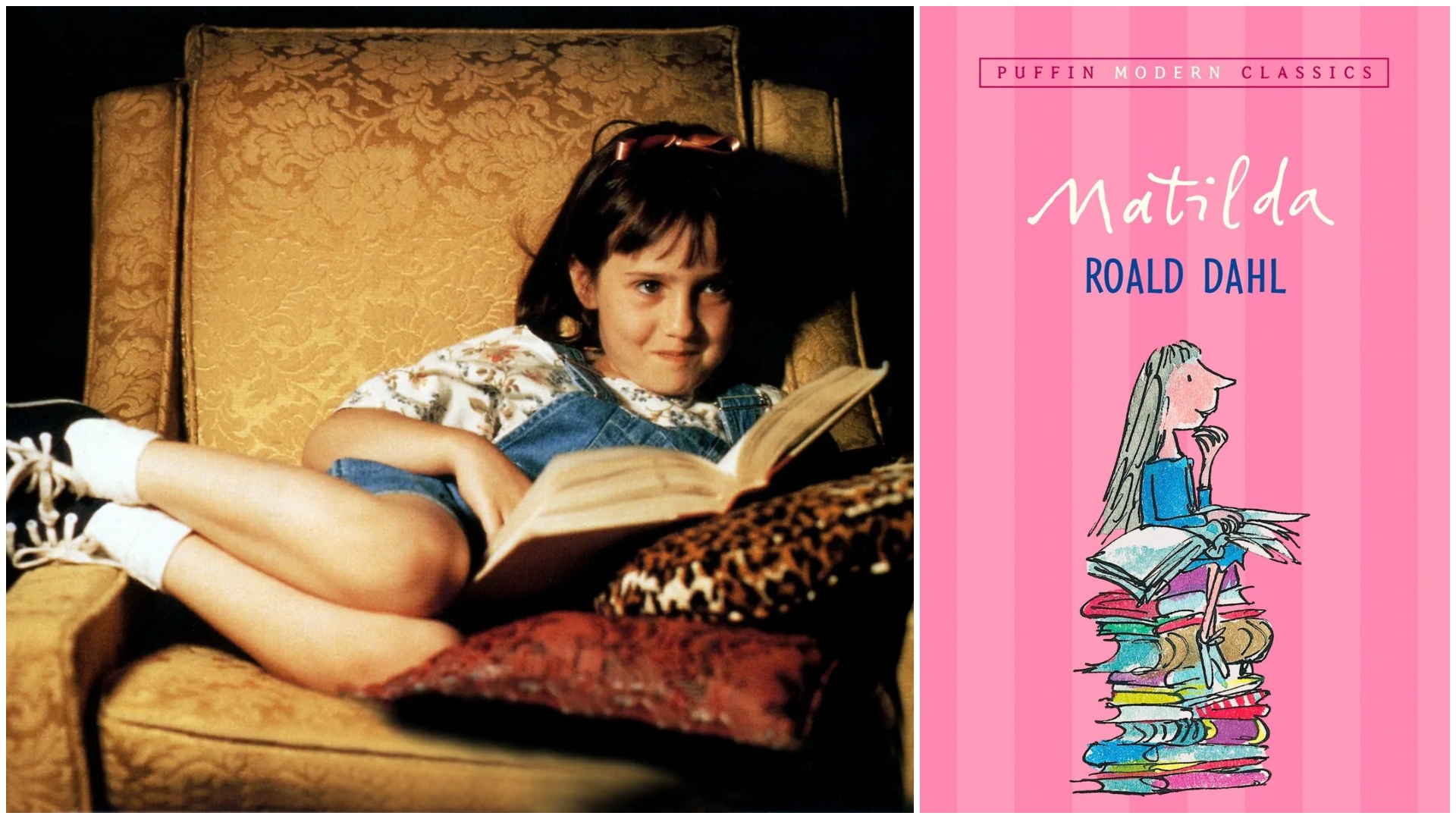
Based on: Matilda (1988) by Roald Dahl
Thanks to this movie, a whole generation of people have tried to get a glass to tip over with their minds. It’s a spot-on and hugely beloved adaptation of Roald Dahl’s children’s novel, in which an intelligent, young girl (Mara Wilson) develops telekinetic powers she uses to get her revenge on her abusive parents and school headmistress, to triumphant effect.
'Never Let Me Go' (2010)
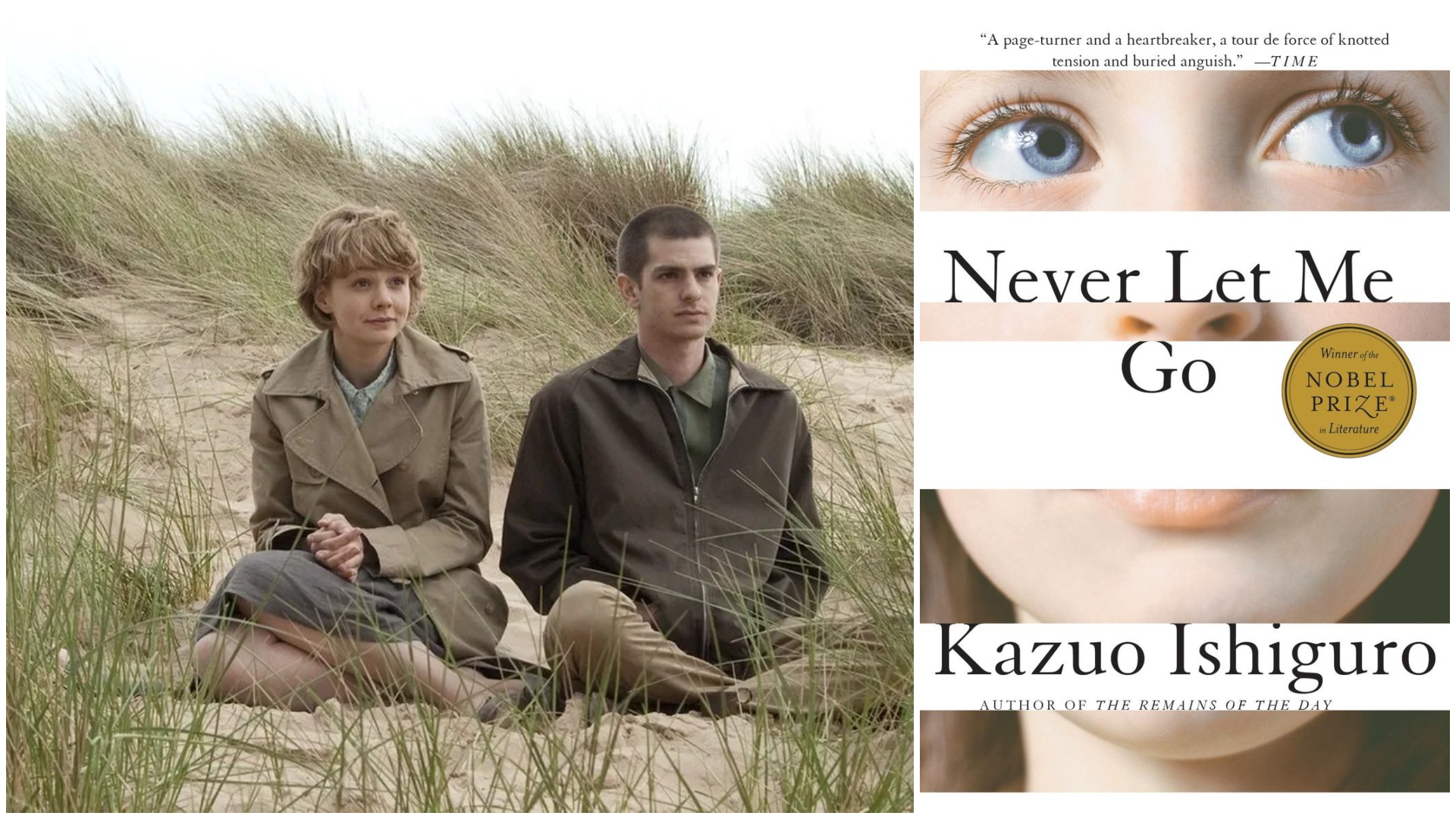
Based on: Never Let Me Go (2005) by Kazuo Ishiguro
The movie version of Kazuro Ishiguro’s award-winning dark academia novel perfectly captured its quietly unsettling vibe—a major win for dedicated fans of the book, including one of the film’s stars, Carey Mulligan. Mulligan stars alongside Keira Knightley and Andrew Garfield in the love triangle at the heart of the story, a dystopian alternate history where certain children are raised to fulfill a specific, eerie purpose.
'Nomadland' (2020)
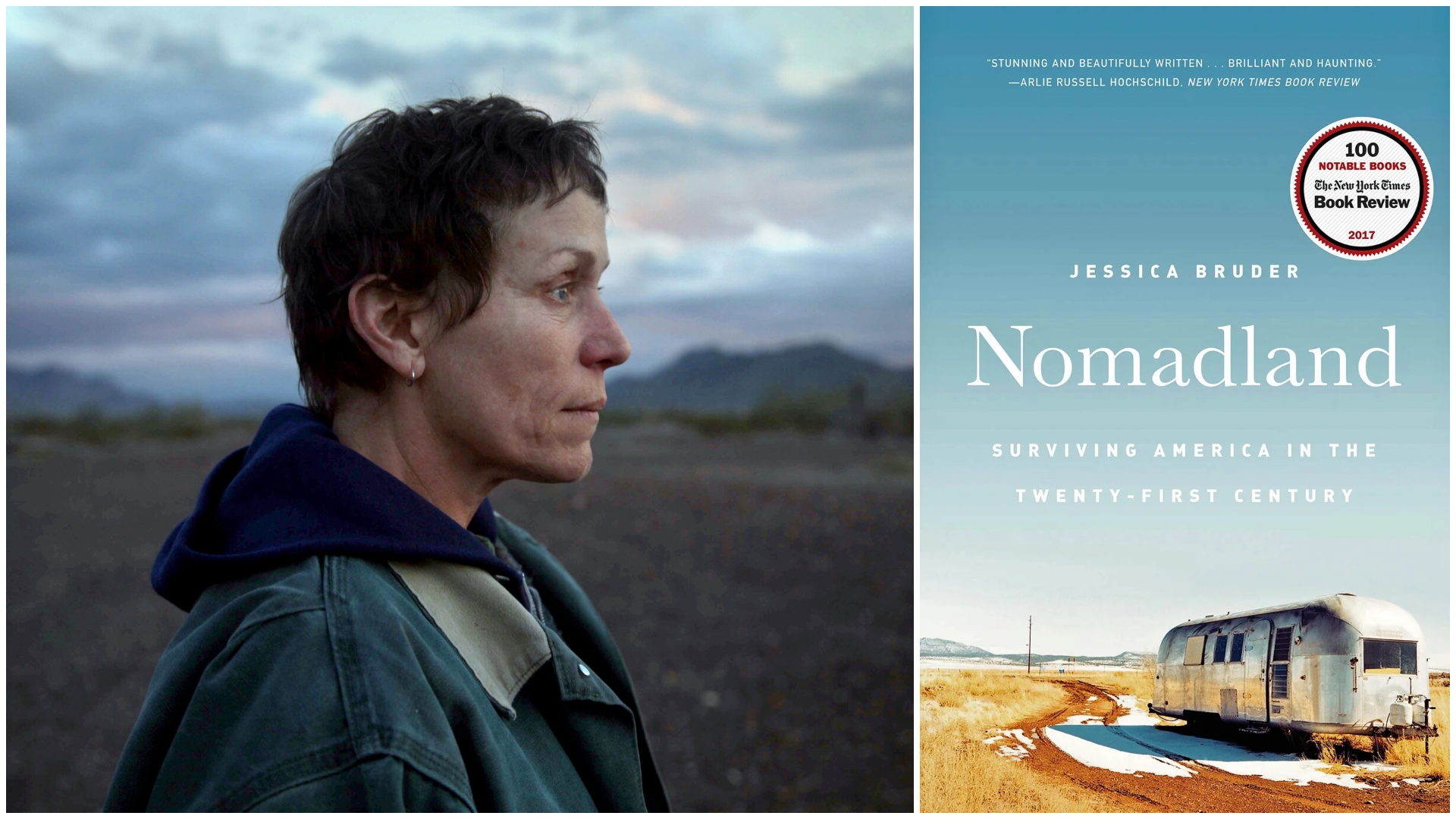
Based on: Nomadland: Surviving America in the Twenty-First Century (2017) by Jessica Bruder
Jessica Bruder’s nonfiction work details the phenomenon of older Americans who were pushed out of the traditional job market by the Great Recession and crisscross the country, living in vans and other temporary dwellings as they pursue seasonal work. Chloé Zhao’s film version stars Frances McDormand as Fern, in a quietly moving portrayal of this nomadic lifestyle. The movie won the Oscar for Best Picture in 2021, as well as lead actress and director trophies, and it also garnered acclaim for filling out the cast with several actual nomads for an extra dose of realism.
'The Notebook' (2004)
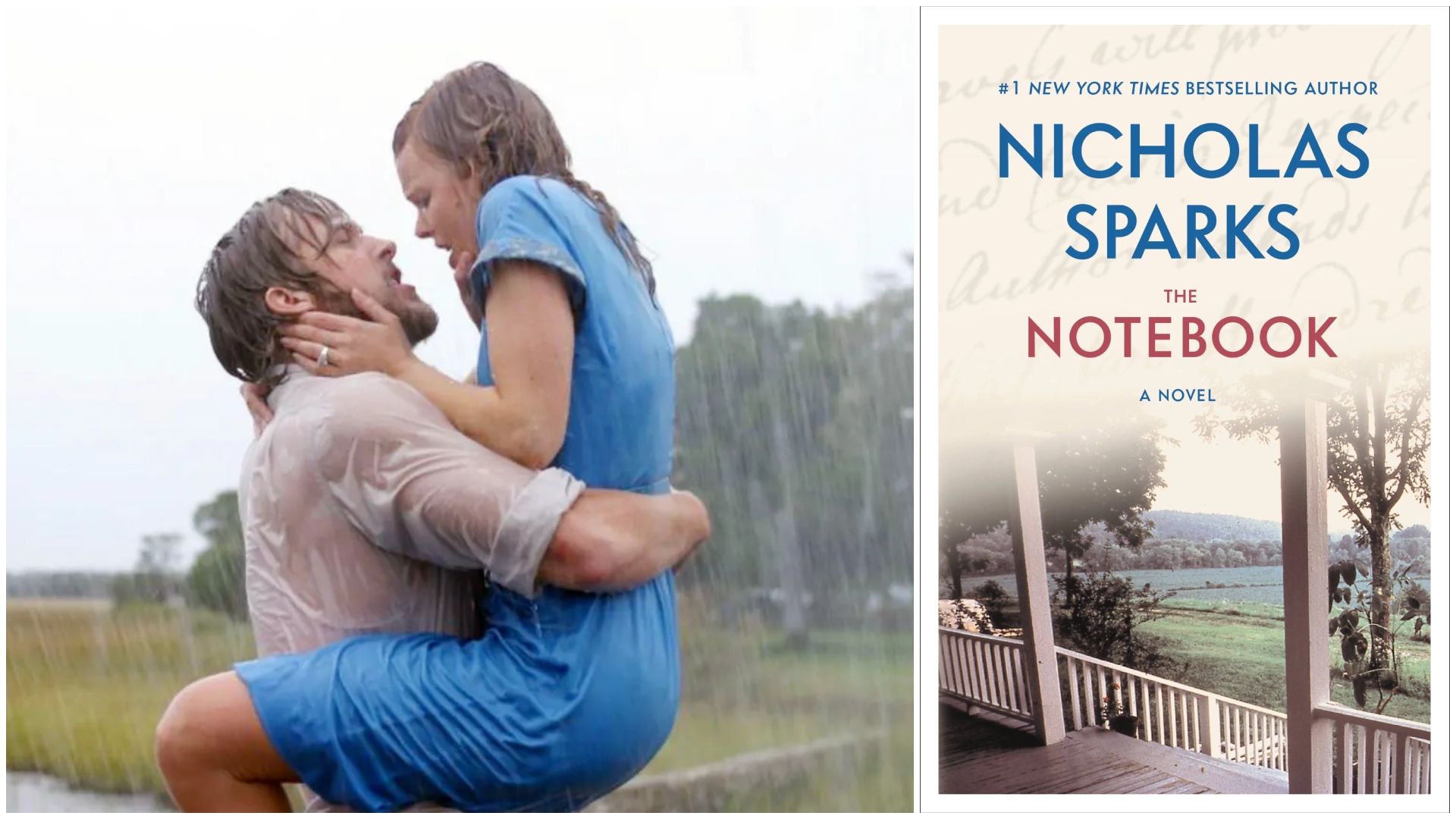
Based on: The Notebook (1996) by Nicholas Sparks
Nicholas Sparks’s debut novel cemented his status as a bestselling author of tear-jerking, tragic romance novels, and its runaway success of a film adaptation sent that reputation skyrocketing even further. The movie has become a cultural icon, having launched Ryan Gosling to heartthrob status, revived Hollywood’s taste for romantic dramas, and produced countless quotes, GIFs, and memes that are still used. If you're a bird, I’m a bird!
'Persepolis' (2007)
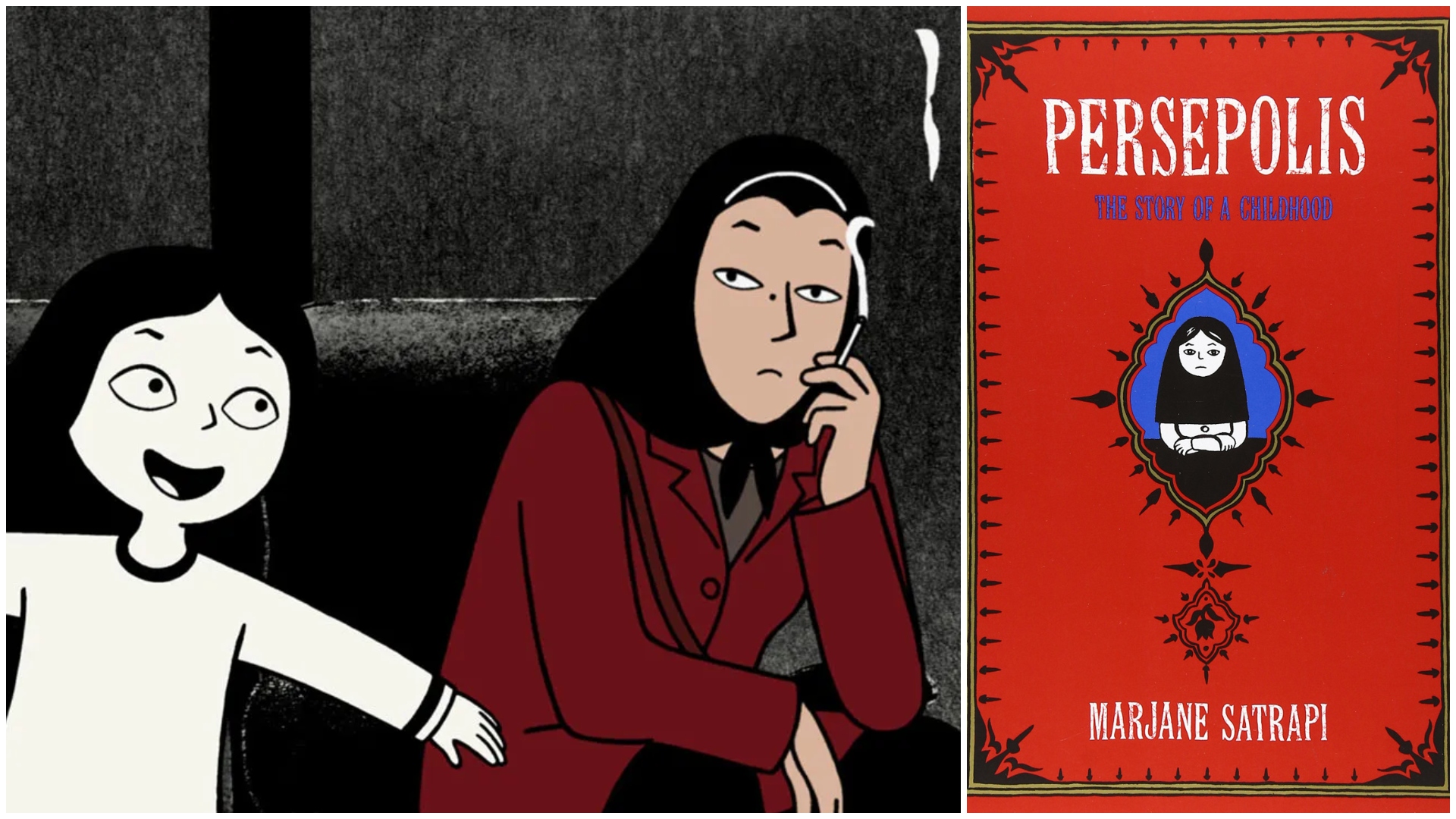
Based on: Persepolis by Marjane Satrapi
Marjane Satrapi co-adapted her own graphic novel alongside French comic artist/filmmaker Vincent Paronnaud to stunning results. In both the book and film, Satrapi recounts her childhood growing up with a liberal family in Iran and later Austria, against the backdrop of the Iranian Revolution and Iran-Iraq War. The animated film retains the primarily black-and-white illustration style of the source material, garnering an Academy Award nomination for Best Animated Feature. A compelling story of one’s coming-of-age journey, wrestling with being in a world that wants to silence you but choosing revolutionary defiance, it’s a feminist film that’s sure to stir something in you.
'Poor Things' (2023)
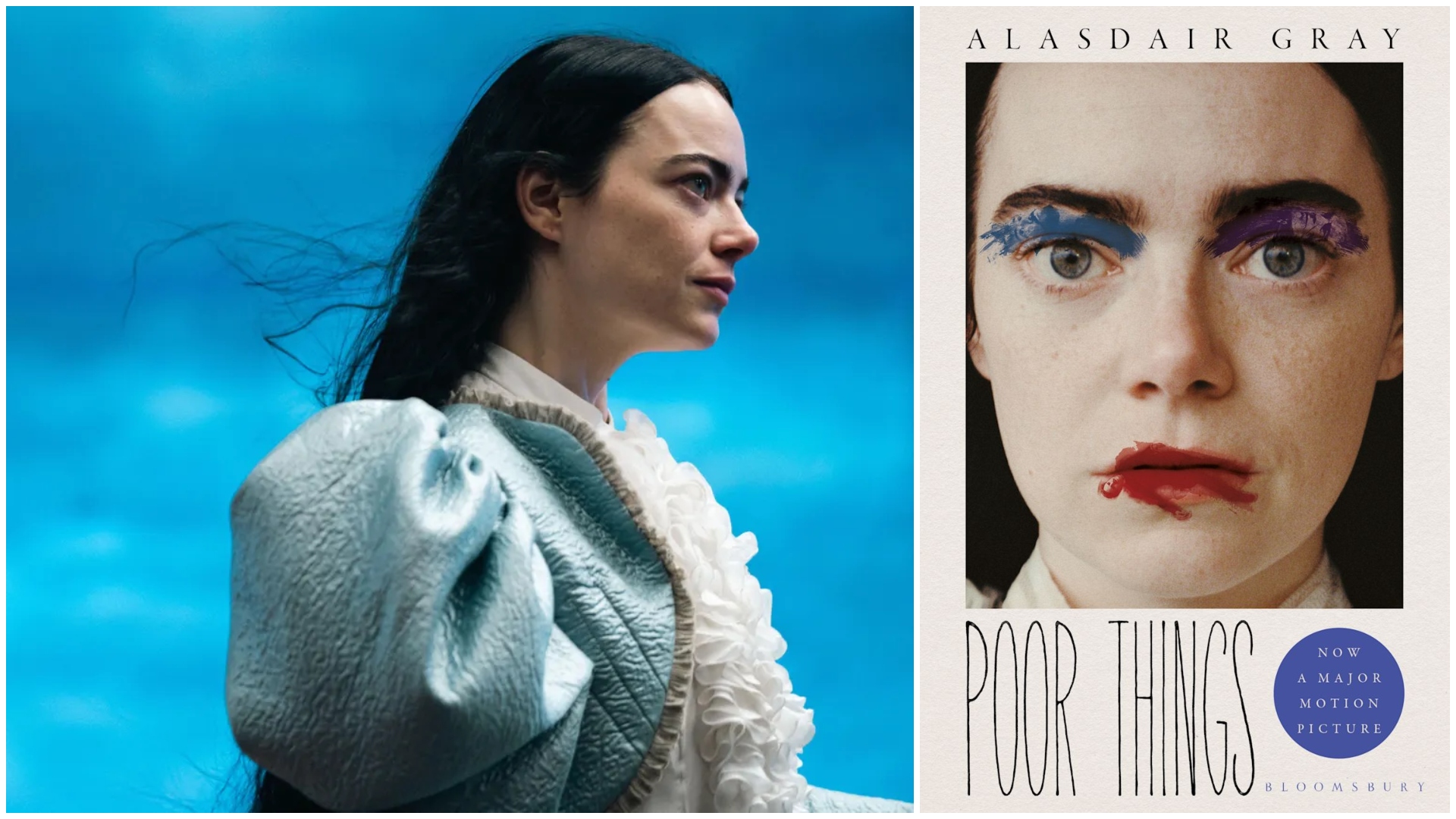
Based on: Poor Things: Episodes from the Early Life of Archibald McCandless M.D., Scottish Public Health Officer (1992) by Alasdair Gray
Emma Stone won an Oscar for her portrayal of Bella Baxter, the subject of Alasdair Gray’s book, which is organized as a compilation of letters, illustrations, field notes, and other literature about Baxter, who had a baby’s brain transplanted into her head after she died by suicide. As if that premise isn’t odd enough on its own, director Yorgos Lanthimos dialed up the weirdness with outlandish sets, costumes, dialogue, and camera work, for a fresh take on the classic “coming-of-age” genre.
'Pride & Prejudice' (2005)
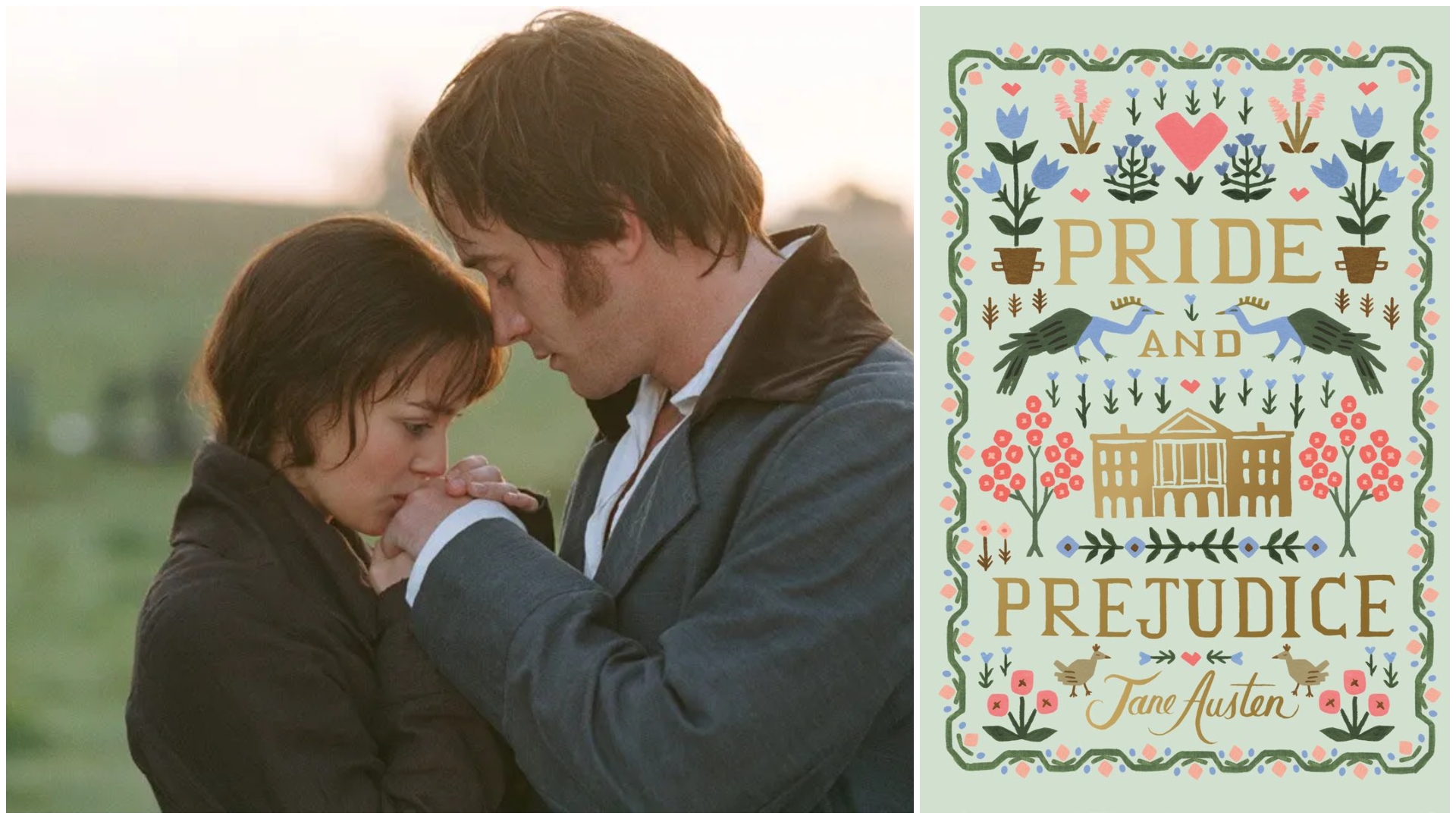
Based on: Pride and Prejudice (1813) by Jane Austen
More than 200 years after Jane Austen’s novel was published, the tangled romance between Elizabeth Bennet and Mr. Darcy continues to melt modern hearts. Top-tier adaptations like Joe Wright's 2005 version starring Keira Knightley and Matthew Macfadyen make audiences fall in love with the story all over again, as this adaptation is a dreamy, historically accurate rendition of the timeless tale.
'The Princess Bride' (1987)
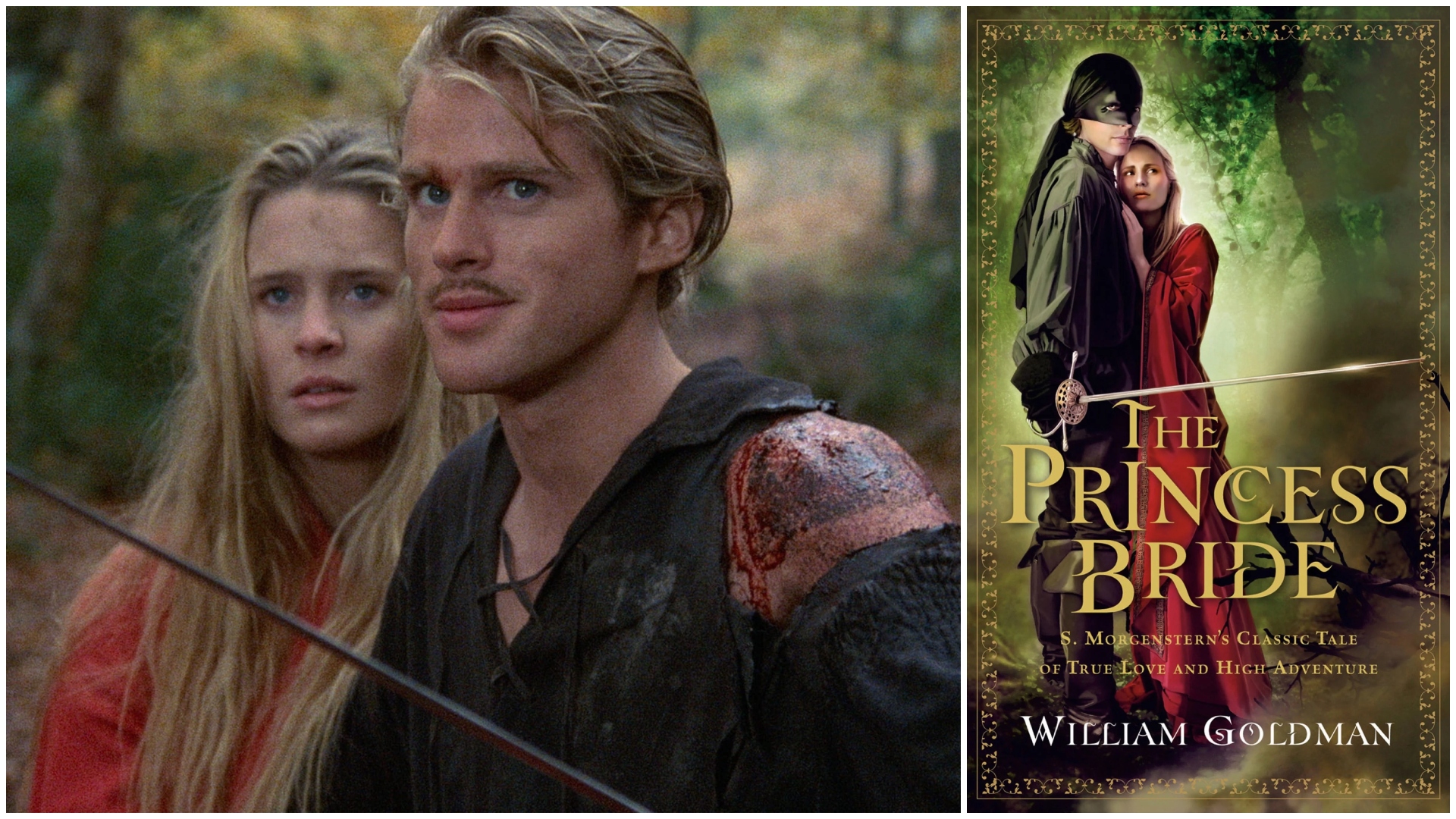
Based on: The Princess Bride: S. Morgenstern's Classic Tale of True Love and High Adventure, The "Good Parts" Version by William Goldman
Rob Reiner’s beloved ‘80s movie The Princess Bride is just as whimsical, hysterical, and meta as the source material, published in 1973. An homage to the fantasy novel’s page-turner quality, the film unfolds as a grandfather (Peter Falk) reads a story to his grandson (Fred Savage), who’s sick in bed. Robin Wright and Cary Elwes are simply magical as the star-crossed lovers Princess Buttercup and Wesley, who sets out on a swashbuckling, sword-fighting adventure to win her back as she’s being married off. Plus, you’ll be laughing non-stop from start to finish.
'The Shawshank Redemption' (1994)
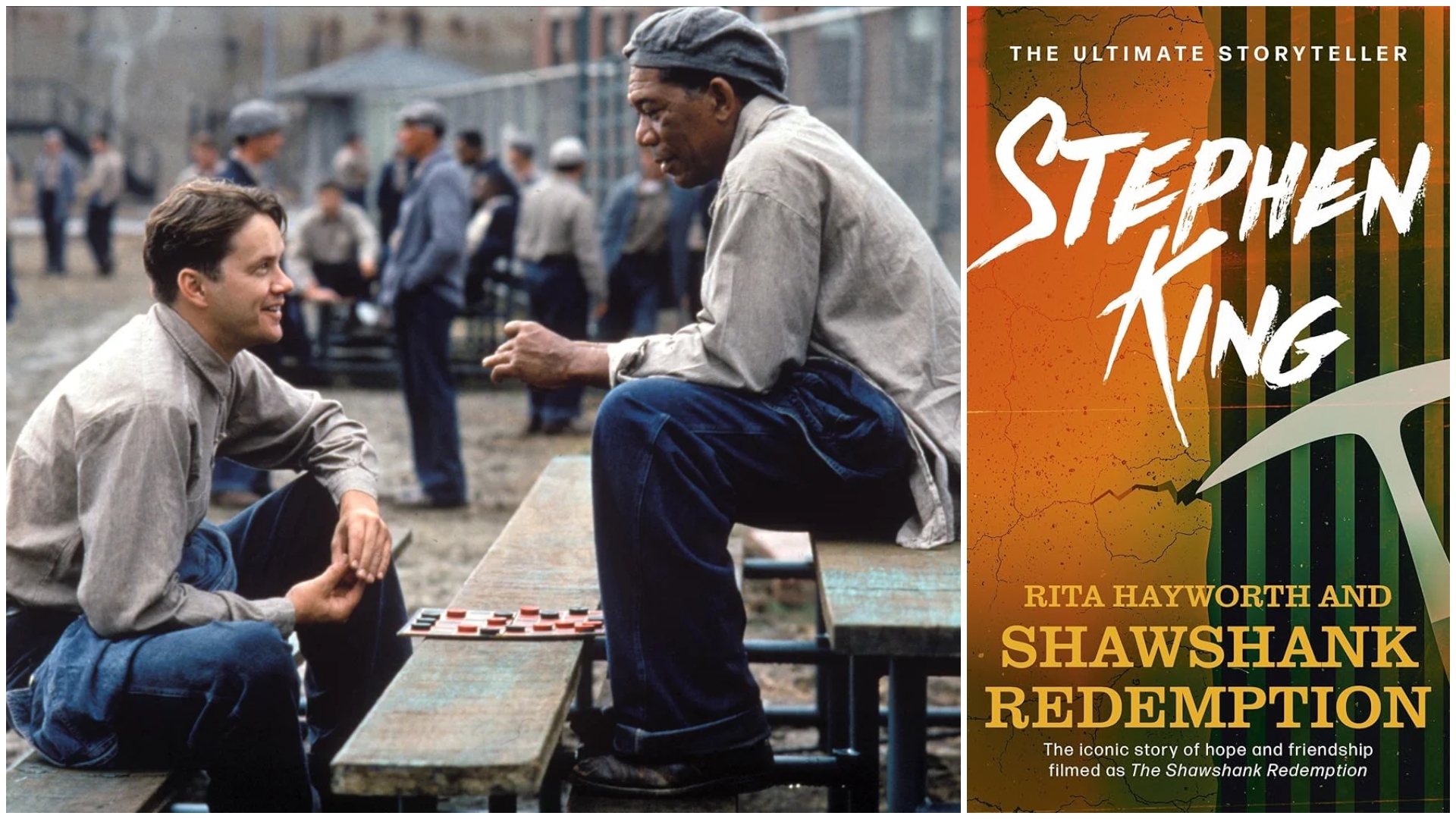
Based on: Rita Hayworth and Shawshank Redemption by Stephen King
Many of horror aficionado Stephen King’s works have been brought to the silver screen, but is any quite as famous as The Shawshank Redemption? The author himself has cited the adaptation of his novella Rita Hayworth and Shawshank Redemption as one of his favorites, even though the film takes a few liberties (notably making the villains more dynamic characters and making the character Red, played by Morgan Freeman, Black instead of white). A moving epic about a man in prison for crimes he didn’t commit (Tim Robbins) and his adjustment to the inside because of his friendship with another inmate, it’s one of those dramas that you need to check off your must-watch list—and will be very glad you did.
'The Social Network' (2010)
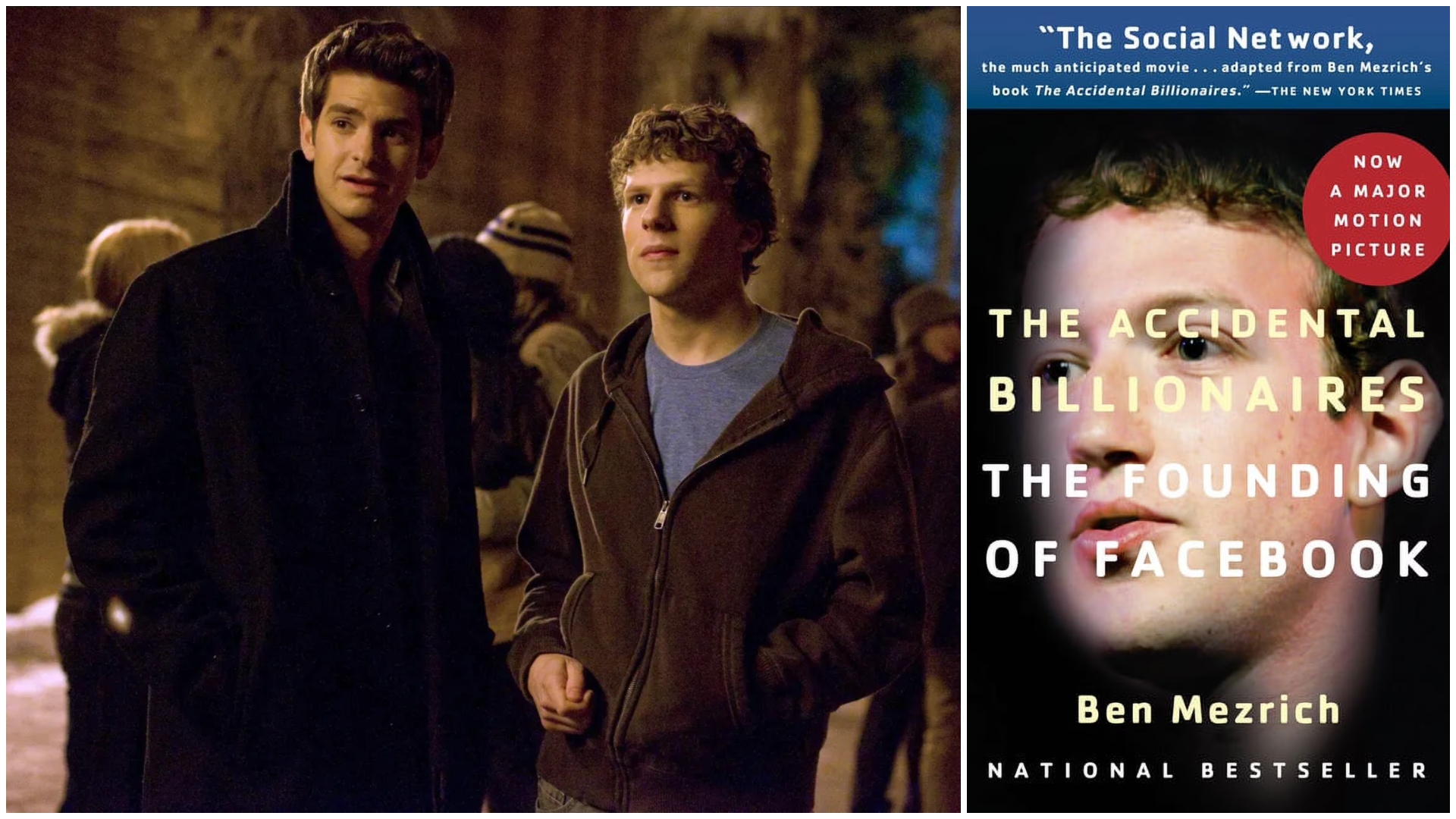
Based on: The Accidental Billionaires: The Founding of Facebook: a Tale of Sex, Money, Genius, and Betrayal (2009) by Ben Mezrich
While nonfiction books often get a bad rap for being dry or slow, Ben Mezrich’s recounting of the early days of Facebook was accused of being fabricated or exaggerated due to its engaging style and the seemingly unbelievable story he described. That gave director David Fincher and screenwriter Aaron Sorkin plenty to work with, and they delivered a film that exquisitely captures some unsavory behind-the-scenes action that occurred in Facebook’s first few years. The Social Network won a trio of Oscars, including the Best Adapted Screenplay trophy, undoubtedly for the Andrew Garfield-as-Eduardo Saverin “fuck-you flip-flops” line alone.
'The Talented Mr. Ripley' (1999)
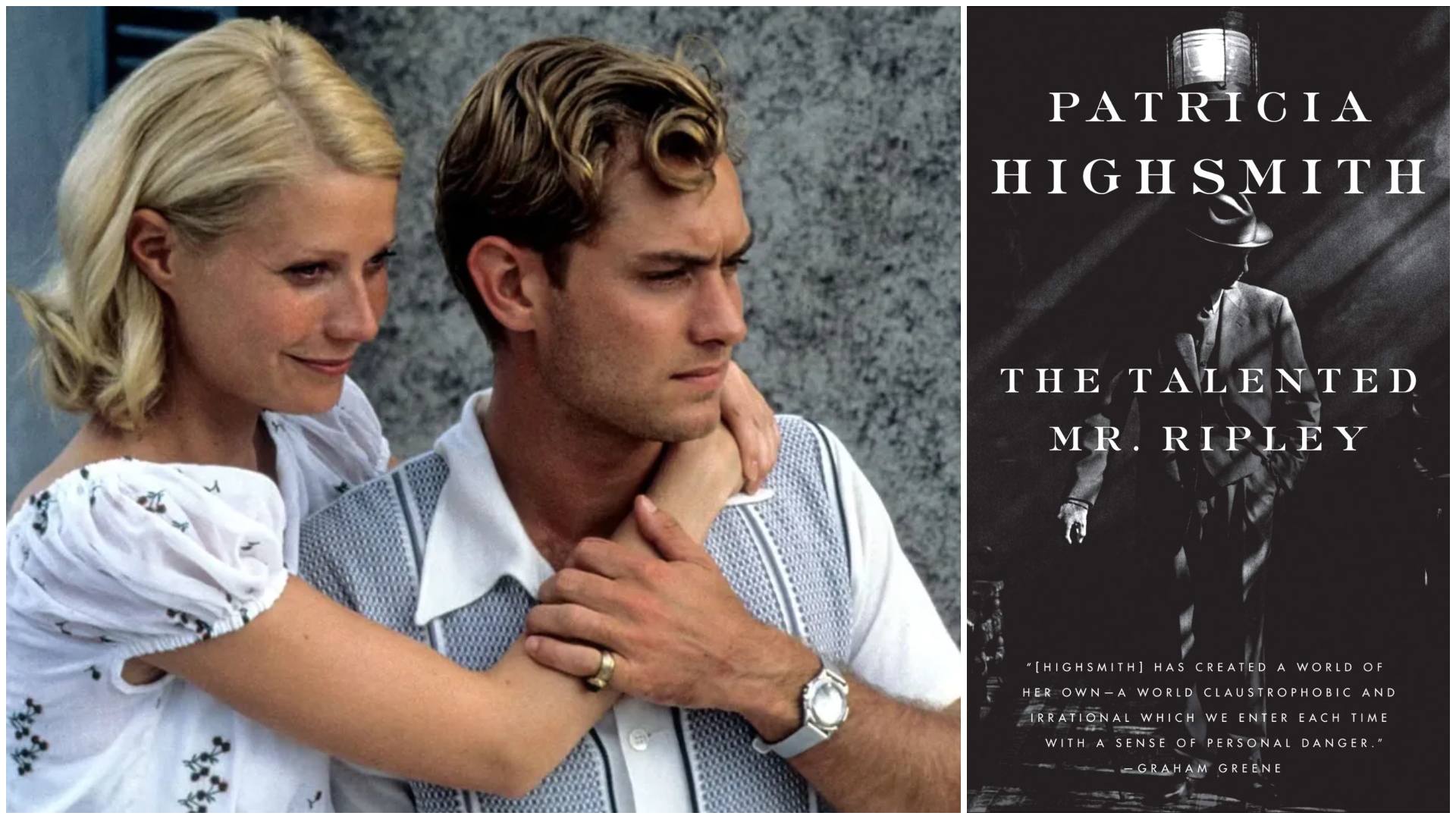
Based on: The Talented Mr. Ripley (1955) by Patricia Highsmith
Patricia Highsmith wrote about the con artist Tom Ripley in five novels stretching from the 1950s to the ‘90s. He’s been brought to life onscreen several times since his first introduction, including in a Netflix series with Andrew Scott in the title role and, of course, in this best-known of the adaptations, with Matt Damon leading a star-studded cast. Like the book, it’s a perfectly unsettling psychological thriller, in which Damon's Ripley becomes increasingly obsessed with Jude Law’s Dickie Greenleaf, much to the suspicion of those closest to Dickie (played by Gwyneth Paltrow and Philip Seymour Hoffman).
'To Kill a Mockingbird' (1962)
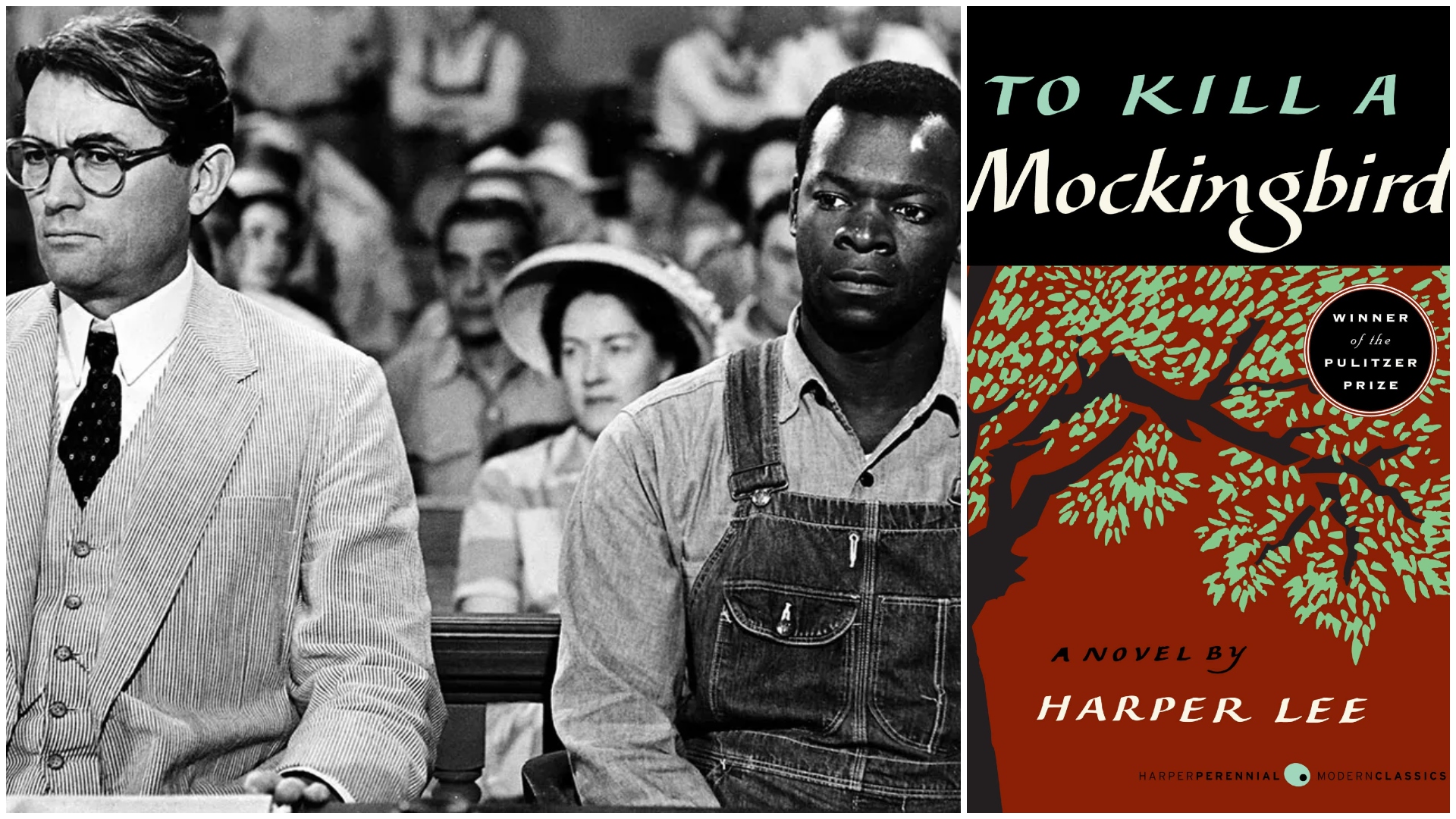
Based on: To Kill a Mockingbird (1960) by Harper Lee
To this day, Gregory Peck remains forever intertwined with the character of Atticus Finch, who’s widely recognized as one of the great heroes of cinematic history. It’s a testament to the film’s faithful depiction of Harper Lee’s Pulitzer Prize-winning classic novel, which tells the story of Atticus and his two young children, Scout and Jem, and their encounters with racism and prejudice in the Jim Crow South.
'The Wizard of Oz' (1939)
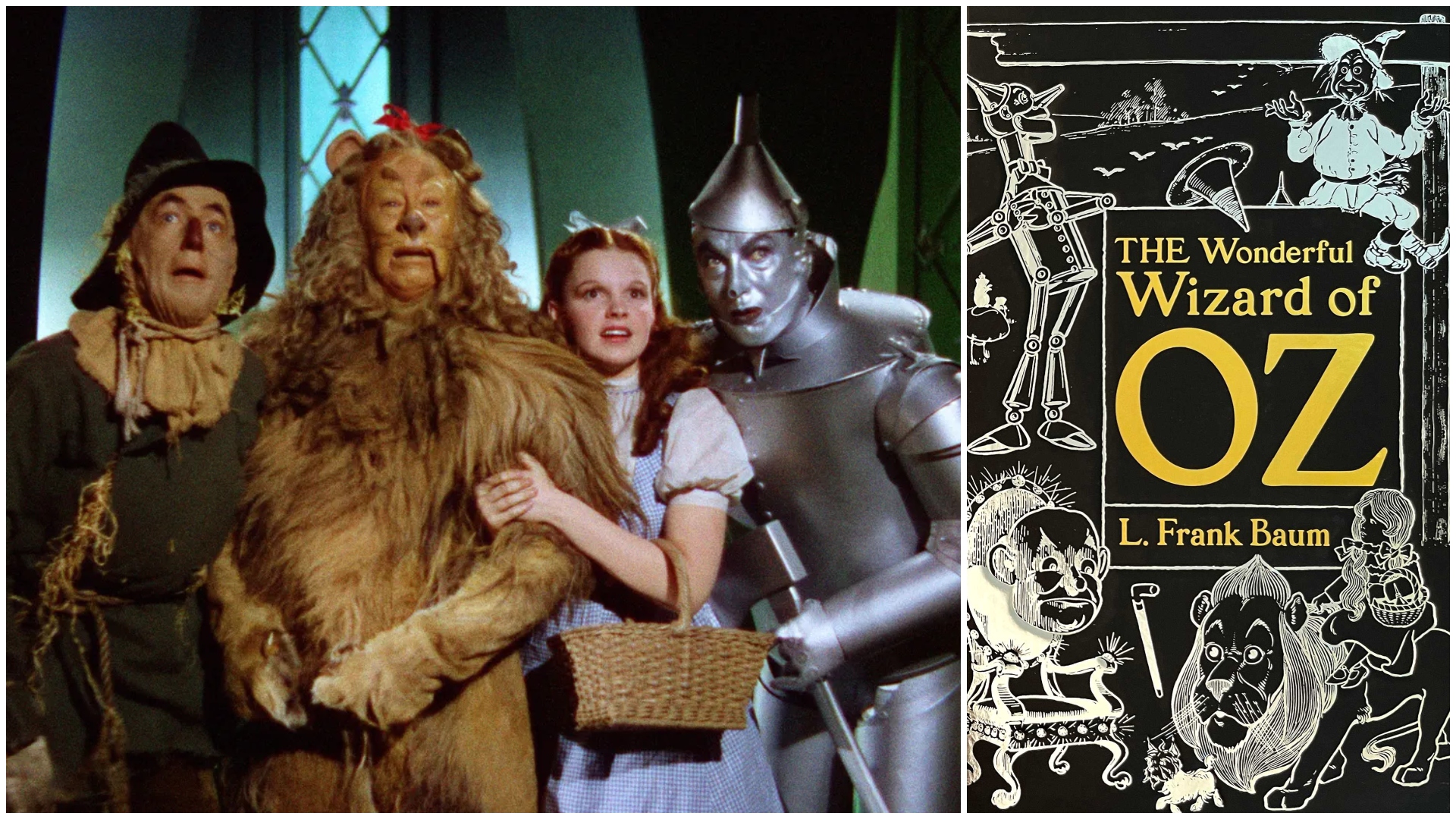
Based on: The Wonderful Wizard of Oz (1900) by L. Frank Baum
L. Frank Baum’s novel is a bit darker and more violent than this film, which has spent the better part of the last century as one of the most important and beloved pieces of American cinema. This is an instance where the movie adaptation has taken on a life separate from the book. Case in point: Though Dorothy’s magical slippers are silver in the novel, the ruby red ones that Judy Garland wears in the film have become iconic in their own right and are now displayed at the Smithsonian.
'Women Talking' (2022)
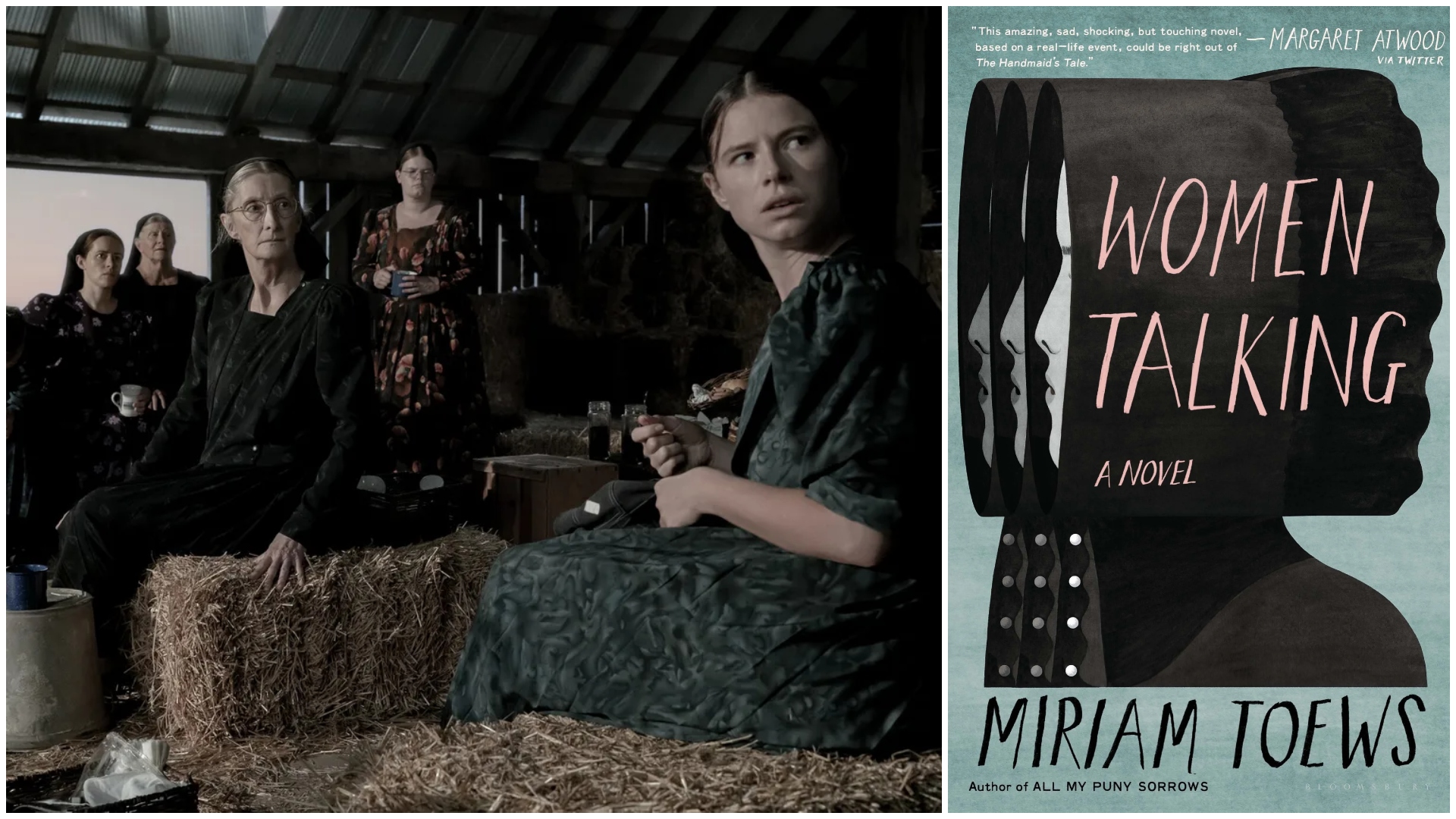
Based on: Women Talking (2018) by Miriam Toews
The title of this heart-wrenching novel and its subsequent big-screen rendition is quite literal. Both versions take place over two days, during which the women of a Mennonite community convene in secret meetings to decide how they’ll handle their recent discovery that some men of the community have been drugging and raping them in their sleep. Though Miriam Toews’s book is a work of fiction, it’s unfortunately inspired by actual events that occurred in a remote Mennonite community in Bolivia between 2005 and 2009.







